|
Many people ask,
how many people will see Jesus when He returns? Christ’s second coming will be bright, loud and glorious. This event cannot be hidden, every human on planet earth will See Jesus!:) He will come back personally and literally. Revelation 1:7 says, “Behold, He is coming with clouds, and every eye will see Him.” There will not be a person on earth who is unaware of Jesus’ return at the end of the tribulation period. Jesus Himself describes the manner of His coming. Matthew 24:27 states that the return of Christ will be like the brightness of lightning illuminating the entire sky from the east to the west. Verses 30 and 31 of the same chapter describe Jesus coming with power and great glory and with the sound of a great trumpet, that awakens the righteous dead who are then gathered from the ends of the earth. Learn more about Jesus coming back as a thief in the night. We know Jesus’ second coming will be a literal event and will be just like He went to heaven the first time!:) Acts 1:9-11 says the following, “Now when He had spoken these things, while they watched, He was taken up, and a cloud received Him out of their sight. And while they looked steadfastly toward heaven as He went up, behold, two men stood by them in white apparel, who also said, ‘ "Men of Galilee, why do you stand gazing up into heaven? This same Jesus, who was taken up from you into heaven, will so come in like manner as you saw Him go into heaven.’” Jesus Himself told us how to recognize the general timeframe of His return. When the disciples said, "Tell us the signs of your coming and the end of the age" (Matthew 24:3), Jesus told them a number of things to look for. He then said, "When you see all these things, you can know my return is near. 'I'm right at the door" (Matthew 24:33). He also said , "When all these things begin to happen, look up for your salvation is near!" (Luke 21:28). This means the #1 indication Jesus will return soon is all the signs appearing together. Both Jesus and the prophets told us what signs to look for, and the appearance of just one is reason enough to take notice. But the arrival of one sign after another demands your attention. It's the sign Jesus said to look for. This convergence of signs is confirmation our generation will witness the Second Coming - not according to me, but according to Jesus! The Convergence of Signs So what are these signs? Jesus and the prophets pointed to dozens and dozens of signs. This article will only cite a few, but the reality of each one of these signs is undeniable. And their convergence should convince you the return of the Lord is close at hand. These signs include: Israel Back in the Land - God promised to bring the Jewish people back into the land of Israel before He returned (Jeremiah 23:7-8). He said He would call them from "among the nations" (Ezekiel 39:28), from "the farthest corners of the earth" (Isaiah 11:12), and from "north, south, east, and west" (Psalm 107:3). He promised to welcome them home from the lands where they were scattered (Ezekiel 20:34). When they did, He promised to return and establish His everlasting kingdom (Isaiah 11:11-12). The Jewish People in Control of Jerusalem - Jesus said armies would surround Jerusalem, destroy the city, and enslaves its citizens. The Roman legions fulfilled this prophecy in A.D. 70. Jesus then said people other than the Jewish people will control Jerusalem for a time, until the Jewish people once again control Jerusalem. When they did, Jesus promised to return (Luke 21:24-28). Since 1967, the Jewish people have controlled Jerusalem. The Gospel Preached Throughout the World - When asked about the end of the age and the signs of His coming, Jesus said to look for a very specific sign. He said the Gospel will be preached throughout the entire world. Every nation will hear it. And then? And then, the end will come (Matthew 24:14). For centuries after the crucifixion, the Gospel was confined to a small area surrounding the Mediterranean Sea. In the past two centuries, Christians have brought the Gospel to every nation in the world. Today, missionaries are in every nation. The Bible is translated in hundreds of languages, and the message of Jesus is sent around the world by radio, TV, satellite, and the Internet. This generation is on the verge of spreading the Gospel to every last person and ethnicity on earth. An Increase in Travel and Knowledge - Six hundred years before Jesus, an angel gave Daniel a special message. He said "travel and knowledge" will increase in the end times (Daniel 12:4). For centuries of human history, dramatic gains in travel and knowledge did NOT take place. Yet the last two hundred years have seen explosions in the speed and frequency of travel as well as the amount and availability of knowledge. Arrival of the Exponential Curve - Jesus said a variety of global signs will come before His return and the end of the age. These signs will be spiritual, natural, societal, and political in nature. He said they will appear in a distinct way - "like birth pains" (Matthew 24:3‐8). This means the frequency and intensity of these signs will increase as we near His return. Our generation has seen the exponential increase in war and famine Jesus said to look for. In the 20th Century alone, more people died from war and famine than lived on the earth when Jesus spoke these words. Israel Surrounded by Enemies - The Bible says enemies will surround Israel in the end times. Those enemies will say "Come, let us wipe away the nation of Israel. Let's destroy the memory of its existence" (Psalm 83:4) and "Let us take for ourselves these pasturelands of God" (Psalm 83:12). Ezekiel said Israel's neighbors will say "God has given their land to us" (Ezekiel 11:14‐17), and "Israel and Judah are ours. We will take possession of them. What do we care if their God is there?" (Ezekiel 35:10). Ever since the rebirth of Israel in 1948, the daily headlines have included these Bible verses. Israel's Muslim neighbors claim the land of Israel for themselves, and they have no regard for the God of Israel. Israel's Exceedingly Great Army - Ezekiel said, in the end times, Israel will field "an exceedingly great army" (Ezekiel 37:10). Zechariah said Israel will be like a fire among sheaves of grain, burning up the neighboring nations (Zechariah 12:6) and even the weakest Israeli soldier will be like David (Zechariah 12:8). Since 1948, Israel has fought no less than four conventional wars against its neighbors. Despite being outnumbered more than 50 to 1, Israel has achieved overwhelming victory every time. Rise of the Gog of Magog Alliance - The Bible says a military alliance that includes Russia, Iran, Turkey, and a number of Muslim nations will attack Israel "in the latter days" (Ezekiel 38:8) when God brings His people home from among the enemy nations (Ezekiel 39:27). Today, we see those very nations coming together for the first time - an alliance that has never existed in world history. Rise of a United Europe - The Bible says a revived Roman Empire will come to power in the end times (Daniel 2, Daniel 7, Revelation 17). According to Daniel, it will be a ten nation alliance of weak and strong nations. Some parts will be as strong as iron, while other parts will be as weak as clay (Daniel 2:42). We see the beginning of this alliance in the European Union - a coalition of weak and strong nations struggling to stay together. The Rise of Global Government - The Bible says a single government will rule the world politically (Revelation 13:7), religiously (Revelation 13:8), and economically (Revelation 13:16‐17) in the last days. It will rule over "all people, tribes, and languages" on the face of the earth (Revelation 13:7). Its authority will be so complete no one will be able to buy or sell anything without its permission (Revelation 13:16‐17). For centuries, a true global government was impossible. Today, world leaders openly discuss it. Denial of the Signs - Almost two thousand years ago, Peter issued a warning. He said in the last days people will mock the idea of Jesus returning. They will make fun of those who believe in the Second Coming and say exactly what we hear today - things like, "I thought Jesus was coming back? What happened to His promise? Generation after generation has said He's coming. Yet, since the beginning of the world, everything has remained the same!" (2 Peter 3:3‐4). The Hour is Late Keep in mind, these signs haven't always been present. Generations of Christians lived and died without witnessing any of these signs. For centuries of Christian history, none of these signs were present. Today, they all are. Jesus said when you see these signs, you can know His return is near. He's right at the door (Matthew 24:33). In fact, Jesus said the generation witnessing these signs will not pass away before He returns (Matthew 24:34). So despite the skeptics and naysayers, Jesus is coming, and ours is the generation that will witness His return. The convergence of all these signs confirm it. How many generations of Christians longed to see what we see? Yet, there's a strange silence in the church. Why? The appearance of all these signs after centuries of waiting should motivate every Christian on earth to make the most of what time we have left. Jesus commanded us to watch for these signs (Matthew 24:42). He scolded the Pharisees and religious leaders when they failed to recognize the signs of His first coming (Matthew 16:3). Will He do any different for those who fail to recognize the signs of His second coming? Jesus warned us not to be caught sleeping when He returns (Mark 13:36). If you're a Christian, God expects you to point out these signs to others and warn them the end is near. If the world ignores you, so be it. But if you recognize the signs of the times and don't tell others about them, you're no different than a watchman who sees an invading army and doesn't sound the alarm. If you fail in your role as watchman, God will hold you accountable for all those who perish (Ezekiel 33:1-6). Have no doubt. The signs of His return are all around us. Jesus is coming. If you've been waiting to share the Gospel with someone, don't wait one minute more. You may not have another opportunity. The hour is late. The signs are present. Now is the season of His return. After His resurrection, Jesus returned to heaven, and the disciples watched as He rose into the sky. The Bible says, “While they [the disciples] watched, He [Jesus] was taken up, and a cloud received Him out of their sight. And while they looked steadfastly toward heaven as He went up, behold, two men [angels] stood by them in white apparel, who also said, ‘Men of Galilee, why do you stand gazing up into heaven? This same Jesus, who was taken up from you into heaven, will so come in like manner as you saw Him go into heaven’ ” (Acts 1:9-11, NKJV). Two points stand out in these verses. First, the Jesus who returns to Earth the second time is the very same Jesus who lived here on Earth with us and went back to heaven following His resurrection. And second, He will return to Earth the same way—“in like manner”—as He went back to heaven. How did Jesus go to heaven following His resurrection? Did He go secretly? No. The disciples watched Him rise, literally, bodily, into the air until a cloud hid Him from their sight. So these verses tell us that Jesus will return to earth the same way—not secretly. Is Jesus' Second Coming Secret? Another Bible text makes it even more clear that Jesus will not return secretly. “Behold, He [Jesus] is coming with clouds, and every eye will see Him, even they who pierced Him” (Revelation 1:7, NKJV). This text says that when Jesus comes, every eye—everyone on earth—will see Him come. That doesn’t sound like He is coming secretly! Matthew says that Jesus’ coming will be as visible as the lightning that flashes from one end of the sky to the other. “For as the lightning comes from the east and flashes to the west, so also will the coming of the Son of Man be” (Matthew 24:27, NKJV). The Bible says that Jesus will come in glory with the angels (see Matthew 16:27); that He will come with the shout of the archangel and a blast from the trumpet of God (see 1 Thessalonians 4:16, 17); that the wicked will see Him coming and cry out for the rocks and mountains to fall on them and hide them from His face (see Revelation 6:14-17); and that He will return as King of kings, leading the armies of heavenly angels (see Revelation 19:11-16). All these texts make it clear that Jesus’ coming is anything but secret! Will Jesus come like a thief in the night? The Bible says, “The day of the Lord will come as a thief in the night, in which the heavens will pass away with a great noise, and the elements will melt with fervent heat; both the earth and the works that are in it will be burned up” (2 Peter 3:10, NKJV; see also 1 Thessalonians 5:2). But does this mean that He will come secretly and snatch away the saved, leaving the wicked behind? No. This very text that says Jesus will come like a thief in the night, also says that the heavens will pass away with a great noise. That won’t be secret! So what does it mean for Jesus to come “like a thief in the night?” The apostle Paul says, “But you, brethren, are not in darkness, so that this Day should overtake you as a thief. You are all sons of light and sons of the day. We are not of the night nor of darkness. Therefore let us not sleep, as others do, but let us watch and be sober” (1 Thessalonians 5:4-6, NKJV). Jesus’ coming will be unexpected by those who are not watching and waiting for Him. It will come upon them like a thief in the night. But His people—who are not of the night nor of darkness—will be looking for Him. They will be aware of the signs of His coming and will know that it is near. Jesus’ coming will not overtake them like the unexpected appearance of a thief. That’s what the Bible means by saying that Jesus’ coming will be like a thief in the night—it will be unexpected to those who are not watching for Him. The "Day" of the Lord comes as a thief in the night: both 2 Peter 3:10 and 1 Thessalonians 5:2 do not speak about the “Lord” coming as a thief in the night, but rather the “day” of the Lord coming as a thief. This completely changes the meaning of the verse. In fact, the subject of the sentence is “day,” while the phrase modifying the subject is “of the Lord.” Christians are to watch and be ready for the “day" of the Lord to come suddenly, but once the event is at hand it cannot be hidden. It will be very obvious when Jesus comes again! Raptured or Left Behind? But doesn’t Matthew 24:37-42 say that when Jesus comes, some people will be snatched away and others will be left behind? Let’s see what Matthew says. “But as the days of Noah were, so also will the coming of the Son of Man be. For as in the days before the flood, they were eating and drinking, marrying and giving in marriage, until the day that Noah entered the ark, and did not know until the flood came and took them all away, so also will the coming of the Son of Man be. Then two men will be in the field: one will be taken and the other left. Two women will be grinding at the mill: one will be taken and the other left. Watch therefore, for you do not know what hour your Lord is coming” (Matthew 24:37-42, NKJV). Matthew says that when Jesus comes it will be like it was in the time of Noah-- some people will be saved (left) and other people will be destroyed (taken). Looking more in-depth at Matthew’s wording, those who are “taken” when Jesus comes are those who are lost, taken away, and destroyed by the brightness of His coming (see 2 Thessalonians 2:8). You can think of it like this, imagine a flood swept through your town. Those who escaped, were left behind by the waters of the flood, while those who lost their lives were taken away by the water. Additionally, in the parallel passage of Luke 17:37, Jesus’ 12 apostles ask the question, “Where Lord?” referring to those who are taken. Jesus responds by saying, “Where there is a dead body, there the vultures will gather.” Thus Jesus again explains that those who are taken will be destroyed as is symbolized by the gathering of vultures seeking to consume the dead. Therefore, we can see that the Bible does not support the idea of the secret rapture for the saved. (Note: Logically and scripturally, the question “where” only applies to those who are taken, because the location of those who are left would be the exact same location as before the event occurred.) Those who hold to the idea of a secret rapture also believe that there will be seven years of tribulation following the rapture and that during this time individuals who were left on earth will have another opportunity to accept Jesus and be saved. Is there any Bible evidence for this belief? Seven Year Tribulation First, there is no biblical evidence for a seven-year period of tribulation following Jesus’ return to Earth. And the Bible is clear that when Jesus returns, every person’s eternal fate has been decided; individuals who are lost will not have a second chance to be saved. Jesus says, “Behold, I am coming quickly, and My reward is with Me, to give to every one according to his work” (Revelation 22:12, NKJV). The Bible presents Jesus’ second coming as the great climactic event of the ages when men and women are either saved or lost for eternity. There is no seven-year period to reconsider our lives and change our destiny. Jesus pictured the separation that will take place at His coming between the righteous and the wicked—the saved and the lost—in these words: “When the Son of Man comes in His glory, and all the holy angels with Him, then He will sit on the throne of His glory. All the nations will be gathered before Him, and He will separate them one from another, as a shepherd divides his sheep from the goats. And He will set the sheep on His right hand, but the goats on the left. Then the King will say to those on His right hand, ‘Come, you blessed of My Father, inherit the kingdom prepared for you from the foundation of the world’ . . . Then He will also say to those on the left hand, ‘Depart from Me, you cursed, into the everlasting fire prepared for the devil and his angels’ ” (Matthew 25:31-34, 41, NKJV). That is not to say there will not be a tribulation. The Bible does certainly foretell of a soon coming “time of trouble such as never was since there was a nation, even to that time” before Jesus’ return (Daniel 12:1). However, does Scripture support the interpretation that Christian believers will be raptured, and taken away from the tribulation, leaving only the wicked? Jesus doesn’t leave us in the dark and sheds light on the event that will be like none other before it. “For then shall be great tribulation, such as was not since the beginning of the world to this time, no, nor ever shall be. And except those days should be shortened, there should no flesh be saved: but for the elect’s sake those days shall be shortened” (Matthew 24:21-22). Are the elect raptured before the tribulation?One must question, if the “elect,” or God’s people, are raptured before “the great tribulation,” why would they need the days “shortened?” Actually, all throughout the Bible, we are given examples of God’s people being saved in the middle of tribulations, not being saved before it.
the faithfulness of the elect will cause them to be the target of the ungodly, bringing about a time of persecution and great tribulation. However, just as throughout all of Biblical history, God preserves His elect. The same Jesus that was with the Hebrew men in the fire and lion’s den, will go with us through our trials. When the last day judgments are poured out on the world, God will shield those who follow Him with all their heart and mind. Of course, the truth of a teaching is not dependent upon who believes it, but whether or not it is in line with all of the Scriptures. The rapture, pre-tribulation & last day eventsThere are some other points to consider when seeing if the “secret rapture” and pre-tribulation understanding fits into the last events of earth’s history as outlined in the Bible:
Bible verses about the raptureJohn 14:1-3 (NKJV), “Let not your heart be troubled; you believe in God, believe also in Me. In My Father’s house are many mansions; if it were not so, I would have told you. I go to prepare a place for you. And if I go and prepare a place for you, I will come again and receive you to Myself; that where I am, there you may be also." Acts 1:9-11 (NKJV), "Now when He had spoken these things, while they watched, He was taken up, and a cloud received Him out of their sight. And while they looked steadfastly toward heaven as He went up, behold, two men stood by them in white apparel, who also said, 'Men of Galilee, why do you stand gazing up into heaven? This same Jesus, who was taken up from you into heaven, will so come in like manner as you saw Him go into heaven.' " Revelation 1:7 (NKJV), "Behold, He is coming with clouds, and every eye will see Him, even they who pierced Him. And all the tribes of the earth will mourn because of Him. Even so, Amen." Matthew 24:27 (NKJV), "For as the lightning comes from the east and flashes to the west, so also will the coming of the Son of Man be." Matthew 24:37-42 (NKJV), "But as the days of Noah were, so also will the coming of the Son of Man be. For as in the days before the flood, they were eating and drinking, marrying and giving in marriage, until the day that Noah entered the ark, and did not know until the flood came and took them all away, so also will the coming of the Son of Man be. Then two men will be in the field: one will be taken and the other left. Two women will be grinding at the mill: one will be taken and the other left. Watch therefore, for you do not know what hour your Lord is coming." Luke 17:35-37 (NKJV), " 'Two women will be grinding together: the one will be taken and the other left. Two men will be in the field: the one will be taken and the other left.' And they answered and said to Him, 'Where, Lord?' So He said to them, 'Wherever the body is, there the eagles will be gathered together.' ” 1 Thessalonians 4:16-17 (NKJV), "For the Lord Himself will descend from heaven with a shout, with the voice of an archangel, and with the trumpet of God. And the dead in Christ will rise first. Then we who are alive and remain shall be caught up together with them in the clouds to meet the Lord in the air. And thus we shall always be with the Lord.” Revelation 6:14-17 (NKJV), "Then the sky receded as a scroll when it is rolled up, and every mountain and island was moved out of its place. And the kings of the earth, the great men, the rich men, the commanders, the mighty men, every slave and every free man, hid themselves in the caves and in the rocks of the mountains, and said to the mountains and rocks, “Fall on us and hide us from the face of Him who sits on the throne and from the wrath of the Lamb! For the great day of His wrath has come, and who is able to stand?” Revelation 19:11-16 (NKJV), "Now I saw heaven opened, and behold, a white horse. And He who sat on him was called Faithful and True, and in righteousness He judges and makes war. His eyes were like a flame of fire, and on His head were many crowns. He had a name written that no one knew except Himself. He was clothed with a robe dipped in blood, and His name is called The Word of God. And the armies in heaven, clothed in fine linen, white and clean, followed Him on white horses. Now out of His mouth goes a sharp sword, that with it He should strike the nations. And He Himself will rule them with a rod of iron. He Himself treads the winepress of the fierceness and wrath of Almighty God. And He has on His robe and on His thigh a name written: KING OF KINGS AND LORD OF LORDS.” 2 Peter 3:10 (NKJV), "But the day of the Lord will come as a thief in the night, in which the heavens will pass away with a great noise, and the elements will melt with fervent heat; both the earth and the works that are in it will be burned up.” 1 Thessalonians 5:2 (NKJV), "For you yourselves know perfectly that the day of the Lord so comes as a thief in the night.” Revelation 22:12 (NKJV), "And behold, I am coming quickly, and My reward is with Me, to give to every one according to his work.” Matthew 25:31-34, 41 (NKJV), "When the Son of Man comes in His glory, and all the holy angels with Him, then He will sit on the throne of His glory. All the nations will be gathered before Him, and He will separate them one from another, as a shepherd divides his sheep from the goats. And He will set the sheep on His right hand, but the goats on the left. Then the King will say to those on His right hand, ‘Come, you blessed of My Father, inherit the kingdom prepared for you from the foundation of the world:' ... Then He will also say to those on the left hand, ‘Depart from Me, you cursed, into the everlasting fire prepared for the devil and his angels.' ” Jesus is patiently waiting to come back, because He is giving humanity as much time as possible to choose and follow Him. Jesus wants as many people as possible to repent and return to heaven with Him. 2 Peter 3:8-9 says, “But, beloved, do not forget this one thing, that with the Lord one day is as a thousand years, and a thousand years as one day. The Lord is not slack concerning His promise, as some count slackness, but is long suffering toward us, not willing that any should perish but that all should come to repentance.” יום הכיפורים
Yom HaKipurim Yom Kippur – The Day of Atonement is still celebrated by Jews today. It is their most important holiday. It comes on the tenth day of the first month. So it is ten days after their New Year (from the rabbinic tradition not given to Moses and not the technical Jewish New Year), Rosh Hashanah. Thus, it comes at a good time for them to practice self-evaluation and repentance at the "beginning of the year." It is referred to as Shabbat Shabbaton, “Sabbath of Solemn Rest” or “Sabbath of Sabbaths.” Old Testament Scriptures Leviticus 16:2-6 the Lord said to Moses, “Tell Aaron your brother not to come at any time into the Holy Place inside the veil, before the mercy seat that is on the ark, so that he may not die. For I will appear in the cloud over the mercy seat. But in this way Aaron shall come into the Holy Place: with a bull from the herd for a sin offering and a ram for a burnt offering. He shall put on the holy linen coat and shall have the linen undergarment on his body, and he shall tie the linen sash around his waist, and wear the linen turban; these are the holy garments. He shall bathe his body in water and then put them on. And he shall take from the congregation of the people of Israel two male goats for a sin offering, and one ram for a burnt offering. “Aaron shall offer the bull as a sin offering for himself and shall make atonement for himself and for his house. Leviticus 16:20-22 “And when he has made an end of atoning for the Holy Place and the tent of meeting and the altar, he shall present the live goat. And Aaron shall lay both his hands on the head of the live goat, and confess over it all the iniquities of the people of Israel, and all their transgressions, all their sins. And he shall put them on the head of the goat and send it away into the wilderness by the hand of a man who is in readiness. The goat shall bear all their iniquities on itself to a remote area, and he shall let the goat go free in the wilderness. Leviticus 16:29-34 He shall make atonement for the holy sanctuary, and he shall make atonement for the tent of meeting and for the altar, and he shall make atonement for the priests and for all the people of the assembly. And this shall be a statute forever for you, that atonement may be made for the people of Israel once in the year because of all their sins. Procedures For The High Priest To Follow A. Do NOT come at any time into the Holy Place. (16:2). Even the high priest did not have free access to the Holy of Holies, which represented the presence of God. The high priest, like all of the people, was a sinner. And God is absolutely holy. Because of that, there was a separation. “Your iniquities have created a separation between you and God.”(Isaiah 59:2). The veil, which separated the rest of the tabernacle from the holy of holies, was a visible symbol of the gap between God and man. God was so serious about the methods used to worship Him, when two of Aaron’s sons used their own ways to approach God, they were killed. Therefore, unrighteous man can only approach a holy God through the way that He has prescribed. The high priest could only come in to the holy of holies once per year on the day of atonement. And very specific procedures were given for him to follow before he was allowed to approach God. This day, and the procedures to follow are as we will see a picture of the gospel message. Sinful man cannot approach God through his good deeds, devices, or methods. There is a wall separating us from Him that can only be bridged through His mercy. (And it was the mercy seat that the high priest approached.) B. Wear holy linen garments (16:4) – To signify the solemnity of this even the high priest had special garments to wear. It was a solemn and serious thing to approach a holy God. The high priest could not roll out of bed in the morning and just casually or sloppily enter into God’s presence. He had to ready himself. He had to wear the garments approved by God. This showed that he respected God’s commands and his own role in representing God’s people as a mediator. Jesus would later tell a parable, teaching His followers that you cannot attend the wedding feast wearing your own clothes. We cannot approach God by our own efforts, but only by what He provides us. The “holy garments” are an outward picture of that reality. C. Bath – “He shall bathe his body in water and then put them on.” (Leviticus 16:4) Before the high priest could even put on the clothes, he had to first bathe. The physical bath would remove outer dirt and impurities, things unfit to take into God’s presence. That reminds us that a person has to be clean and pure in order to approach God. The outer washing is a picture of that spiritual transaction that has to take as we must be consecrated and cleansed to come in to God’s presence. 1 Peter 3:21 – Baptism, which corresponds to this, now saves you, not as a removal of dirt from the body but as an appeal to God for a good conscience, through the resurrection of Jesus Christ.
That is a reminder that sanctification is an ongoing process. D. Aaron (and future high priests) first offered a bull offering for himself and his family (16:6) – The high priests themselves were sinners. So how could they be representatives of the people and come before the Lord as their mediator? Their own sins had to be dealt with first. So before Aaron could even come into God’s presence or offer a sacrifice for the people, he had to offer one for himself and his own family. E. Two goats (16:7-10) – Next the high priest would take two goats and bring them to the entrance of the tabernacle. Lots would be cast. One would be chosen for the sacrifice. The other would be chosen as the scapegoat. After the other sacrifices were made, the priest would lay his hands on the scapegoat, and confess the sins of Israel, ritually removing them from Israel and putting them onto the innocent animal. That animal would then be sent into the wilderness away from the Israelite camp. It was another physical picture of the spiritual reality taught in Psalm 113:12, ” As far as the east is from the west so far does he remove our transgressions from us.” Their sins were symbolically imputed to the animal who took the suffering for them.
F. Censer with coals from the altar and two handfuls of sweet incense – The high priest was to offer up incense before the Lord INSIDE the veil. The text says, “so that he does not die.” The incense cloud would cover the mercy seat and God would show mercy. Incense often represents prayers in the Bible. And we are reminded from this that Jesus as our high priest also offers intercession for us that we may receive mercy from God. (Romans 8:34) G. Sprinkle blood from the bull offering – In the next step, the priest would take some of the blood of the bull sacrifice and sprinkle it on the mercy seat that is on top of the Ark of the Covenant. The bull’s blood was offered for the high priest and his own family. Only after first receiving forgiveness could he represent the people. He would sprinkle the blood seven times. Seven represented the number of perfection or completeness. So it reminds us that God’s forgiveness is complete. Those whom He cleans, are completely clean. H. The second goat of the sin offering (16:14-16) – After the high priest was cleansed, he would then offer the goat sacrifice for the people, following the same ritual of sprinkling the blood on the mercy seat seven times ” Leviticus 16:17 – “has made atonement for himself and for his house and for all the assembly of Israel.” After sprinkling the mercy seat, he would then go back outside the tabernacle and sprinkle the horns on the altar. Something interesting I noticed is that not only did the people need atoning for. The altar itself, the holy place, and even the tabernacle needed atoning for. ” Leviticus 16:20 “And when he has made an end of atoning for the Holy Place and the tent of meeting and the altar.” That is very revealing. There is nothing holy apart from God Himself. The most beautiful and holy-looking things themselves were unclean.
Atonement meaning –
What word does the sacrificial system bring to your mind? For me, it is TEDIOUS. We have only covered a few of the many regulations of this ONE DAY per year. Rules for bathing. Rules for how to wear clothes. Rules for animals. Rules for sacrifices. Rules for the tabernacle. Rules for going in to the holy place. Rules for sprinkling. And many rules aren’t even mentioned here. Rules for the exact composition of ingredients of the incense. Rules for the exact dimensions and materials for the veil and tent. Also, there had to be atonement for so many people, atonement for the high priest first, atonement for the altar, atonement for the tent, atonement for the holy place (atonement for the things used to bring atonement to others)! This specific ritual had to be done every year, over and over and over and over again. And that is only one day per year. The rest of the year was filled with other sacrifices, repeated again and again and again. Praise God we can read and study this and understand God’s plan. But brothers and sisters, we also praise God that we are not under this anymore. Why? Jesus. All of this was designed to point us to Christ. Symbolism and Pointing to Christ in the NT Hebrews is like the New Testament Leviticus. The writer shows us how God used these Old Testament rituals, which were temporary, to point us to something far greater, which is permanent. Hebrews 9:11-15; But when Christ appeared as a high priest of the good things that have come, then through the greater and more perfect tent (not made with hands, that is, not of this creation) he entered once for all into the holy places, not by means of the blood of goats and calves but by means of his own blood, thus securing an eternal redemption. For if the blood of goats and bulls, and the sprinkling of defiled persons with the ashes of a heifer, sanctify for the purification of the flesh, how much more will the blood of Christ, who through the eternal Spirit offered himself without blemish to God, purify our conscience from dead works to serve the living God. Therefore he is the mediator of a new covenant, so that those who are called may receive the promised eternal inheritance, since a death has occurred that redeems them from the transgressions committed under the first covenant. Hebrews 9:25-26 – Nor was it to offer himself repeatedly, as the high priest enters the holy places every year with blood not his own, for then he would have had to suffer repeatedly since the foundation of the world. But as it is, he has appeared once for all at the end of the ages to put away sin by the sacrifice of himself. Hebrews 10:11-12 – And every priest stands daily at his service, offering repeatedly the same sacrifices, which can never take away sins. But when Christ had offered for all time a single sacrifice for sins, he sat down at the right hand of God. If you have studied Hebrews before, you probably are aware of the theme. The writer’s thesis is simple: Jesus is superior. He goes through many different things and proves that Jesus is superior to them all. Jesus is superior to the angels. Jesus is superior to Moses. He is superior to the priests. He is superior to Old Testament leaders. His sacrifice is superior to the Old Testament sacrifices. His covenant is superior to the Old Covenant. Jesus is far greater than everything else that has come before (or will come after). Those things, however, serve their purpose. What is their purpose? The lead us to Christ. By being compared to Christ, they reveal to us how glorious He is. Think about it this way. If the Old Testament sacrificial system was never established, people would not be aware of how serious their sins are. Nor would they have the same level of gratitude for and awe of Jesus’ once-for-all sacrifice. These things very existence glorify Jesus who outshines them. Jesus could do in one man and in one moment what thousands of men and millions of sacrifices could not accomplish in hundreds of years. When you look specifically at the tabernacle and the Day of Atonement, you see that Jesus is everything. Jesus provides us with the garments to wear, giving us white robes. Jesus’ blood purifies us from our sin. Jesus is the high priest coming into God’s presence and offering a sacrifice on our behalf. And He Himself is that perfect sacrifice. He is the one who tears down the veil. He is the altar. He is the lampstand. He is our intercessor. He is our mediator. He represents us to God as our advocate. And He reveals God to us. There are a couple of differences though between Jesus’ sacrifice and the Day of Atonement. Jesus did not need to purify Himself or offer sacrifices for Himself as Aaron did. He was already perfectly holy. Therefore, He is a better mediator. Also, His sacrifice is better. Once was enough. His blood is absolutely perfect and infinitely valuable. So one sacrifice for all time is sufficient. It never needs to be repeated. Also, He can go into the Holy of Holies at any time because He Himself is holy. He is better than the scapegoat, because the scapegoat only took the people’s sins away (and that symbolically and for a short amount of time). Jesus’ actually imputes His righteousness to us. So not only can He can in to the Holy of Holies at any time, but those in Him can too. We can boldly approach God’s throne of grace directly at any time as His children because of Christ’s work for us. What the people would do? Leviticus 23:26-32 – And the Lord spoke to Moses, saying, “Now on the tenth day of this seventh month is the Day of Atonement. It shall be for you a time of holy convocation, and you shall afflict yourselves and present a food offering to the Lord. And you shall not do any work on that very day, for it is a Day of Atonement, to make atonement for you before the Lord your God. For whoever is not afflicted on that very day shall be cut off from his people. And whoever does any work on that very day, that person I will destroy from among his people. You shall not do any work. It is a statute forever throughout your generations in all your dwelling places. It shall be to you a Sabbath of solemn rest, and you shall afflict yourselves. On the ninth day of the month beginning at evening, from evening to evening shall you keep your Sabbath.” We have looked at the priest’s role, I want to briefly look at what the people would do on this day.
Baptism is a symbol of spiritual cleansing, or purification. How often do you need to clean your house, is once enough? Many often turn comprehensive cleaning into a yearly ritual, “spring cleaning.” If at no other time, once a year the whole house is scoured into shape. There’s a difference between tidying and cleaning. Tidying involves putting shoes on racks, clothes into drawers, books on shelves, and toys in bins. Cleaning requires vacuuming, mopping, spraying, wiping, scrubbing, and magic-erasing. To my eyes, at least, tidying makes a more immediate, obvious difference. But cleaning reaches deeper, and its effects last longer. Did you know that in the law God gave Israel through Moses, God himself instructed the people to clean his house once a year? Leviticus 16: Purging God’s People and Place; Leviticus 16 is a familiar passage, but we often miss this aspect of it. In the instructions this chapter gives for what is often called the Day of Atonement—or Yom Kippur—God appoints cleansing not only for the people, but also for his tabernacle. Why did God’s house need cleaning? At the literary center of Leviticus 16, and at the center of the actions it prescribes for this day, is a sin offering brought into the Holy of Holies, the innermost room of the tabernacle, God’s portable dwelling with his people (Lev. 16:15–19). This was the only time when anyone was permitted to enter the Holy of Holies, and only the high priest was granted entry (cf. Heb. 9:6–7). The high priest was instructed to kill the goat of the sin offering, collect its blood in a bowl, enter the Holy of Holies, and sprinkle the blood over and in front of the mercy seat (Lev. 16:15). To what effect? “Thus he shall make atonement for the Holy Place, because of the uncleannesses of the people of Israel and because of their transgressions, all their sins.” And what happens to the innermost room happens to the whole: “And so he shall do for the tent of meeting, which dwells with them in the midst of their uncleannesses” (Lev. 16:16). Leviticus 16 teaches us sin not only burdens us with guilt, it also stains us and whatever we touch. Sin makes us both unclean and transmitters of uncleanness. Through the tabernacle, God dwelt with the Israelites in a special way. But their sin came between them and God. The people’s sin dirtied God’s house. It threatened to push away the God who graciously chose to dwell with them (Ex. 29:45–46; Lev. 26:11–12). Leviticus 16 teaches us sin not only burdens us with guilt, it also stains us and stains whatever we touch. So, this divinely appointed yearly cleaning of God’s had two effects: the Day of Atonement purged God’s people and his place. We see both in Leviticus 16:33: “He shall make atonement for the holy sanctuary, and he shall make atonement for the tent of meeting and for the altar, and he shall make atonement for the priests and for all the people of the assembly.” Jesus’s Offering in Hebrews: But sin’s problems go even deeper than what Leviticus 16 tells us. Israel’s sins eventually piled up to such an extent that, as the Lord warned in advance, the land “vomited” them out (Lev. 18:24–25). Ultimately, the sins that Israel committed drove the Lord far from his sanctuary (Ezek. 8:6). In judgment, God’s glory departed from his sanctuary (Ezek. 10:1–22). And though God restored his people and enabled them to rebuild their temple, the underlying condition of sin persisted. Persisted, that is, until Jesus came to deliver us. As Hebrews tells us, the fact that the Day of Atonement had to be repeated yearly signals that it wasn’t a final solution to sin: “For since the law has but a shadow of the good things to come instead of the true form of these realities, it can never, by the same sacrifices that are continually offered every year, make perfect those who draw near” (Heb. 10:1). But that is just what Jesus came to do. The fact that the Day of Atonement had to be repeated yearly signals that it was not a final solution to sin. On the cross, Jesus gave his life for ours, paying the price we deserved for our sins. Echoing Leviticus 17:11, Hebrews 9:22 reminds us, “[W]ithout the shedding of blood there is no forgiveness of sins.” In his death, Jesus “bore the sins of many” (Heb. 9:28). And then, on the third day, he rose from the dead, thereby obtaining “the power of an indestructible life” (Heb. 7:16). Jesus then did what the high priest on Yom Kippur only foreshadowed: he entered God’s Holy of Holies in heaven, and presented himself there to the Father as the perfect, sufficient, once-for-all sacrifice. Only in light of what we’ve seen in Leviticus 16 do passages like the following make sense: Thus it was necessary for the copies of the heavenly things to be purified with these rites, but the heavenly things themselves with better sacrifices than these. For Christ has entered, not into holy places made with hands, which are copies of the true things, but into heaven itself, now to appear in the presence of God on our behalf. Nor did he enter to offer himself repeatedly, as the high priest enters the holy places every year with blood not his own, for then he would have had to suffer repeatedly since the foundation of the world. But as it is, he has appeared once for all at the end of the ages to put away sin by his sacrifice. (Heb. 9:24–26; cf. 9:11–12) By entering God’s dwelling in heaven and presenting himself to God, Jesus perfectly purged God’s people and his place. On the cross, Jesus was slain as the spotless victim whose blood purchases our eternal life (Heb. 9:22, 28; cf. 9:15; 13:20). After rising again, he was appointed high priest in the order of Melchizedek (Heb. 5:7–10; 7:11–28). Then, after ascending to heaven (Heb. 4:14; 7:26), Jesus offered himself, his body, his blood, by presenting himself alive to God in the throne room of God’s heavenly tabernacle (Heb. 7:27; 8:1–5; 9:11–14, 23–28; 10:10–14; 12:24). In addition to cleansing God’s dwelling in heaven, Jesus’s heavenly offering obtained for us perfection (Heb. 10:14), redemption (Heb. 9:12), forgiveness (Heb. 10:18), and unhindered access to God forever (Heb. 4:16, 10:19–20). Deepest Deep Clean: Parts of this reading of Hebrews might be new to you. Many Christians have understood Hebrews to locate Jesus’s offering exclusively on the cross. But a deeper understanding of Leviticus 16 can help us understand the book of Hebrews better, too. The high point of the Day of Atonement was what the high priest did in the Holy of Holies. Hebrews itself tells us this when it reminds us that only the high priest could enter the Holy of Holies, “and he but once a year, and not without taking blood, which he offers for himself and for the unintentional sins of the people” (Heb. 9:7). Where and when did the high priest make his offering? When he entered God’s earthly inner sanctum. Where and when did Christ make his offering? When he entered God’s heavenly inner sanctum, after rising from the dead and ascending to heaven. This in no way downplays or diminishes the cross, since the cross is where Jesus gave his life for ours, defeated death, bore the curse of the old covenant, and inaugurated the new (Heb. 2:9, 14–15; 9:15–17; 13:20). By presenting himself alive to God in heaven, Christ presented to the Father what his death on earth accomplished. In heaven, Christ offered to God what he achieved on the cross. This is the cleansing we need far more than any spring cleaning. And it’s the deepest deep clean that can never—and need never—be Lessons Every part of the Bible is useful and rich, even Leviticus! There is great value in studying the Old Testament sacrificial system and feasts (below), but we do not have to go back to the Old Testament law. The rules for this festival and the others we have studied are found in Leviticus. Leviticus gives us the Old Testament law. If you are under the obligation to observe the feasts, then you are under obligation to obey the whole law. We are not. We are under Christ. We are free of this tedious system, which was never intended to be permanent, but which always was intended to point us to something better, that is Christ. Having said that, there is great value in studying this and the other feasts. What?
How to celebrate the Day of Atonement today? A. We don’t need to keep the day of atonement the same way they did in the Old Testament. And in fact, it would be impossible for us to do so since there is no temple or sacrificial system in place today. That was something that had to be repeated over and over every year in order to provide a temporary cover for sins. God designed it to point to something far greater, far more superior. Christ. B. We should remember Christ’s sacrifice every day. We celebrate this all the time because there is nothing more important. C. We should also have times of repentance and self-denial (fasting.) We should do that regularly as a lifestyle. And we should also have times when we set aside to do it. That is one benefit of having a set day for everyone to practice repentance and self-evaluation together. At the same time, all doing it together can become legalistic and less personal. So today, we need to make time to repent on a regular basis. D. We should regularly confess our sins and seek forgiveness. It is an amazing privilege that cleansing is available to us so we should not take it for granted. Today we have seen some of the background for the Day of Atonement. And we have seen that this festival points us squarely to Christ who is superior in every way. If I could leave you with one thing- it is this: I hope you will be in complete awe of Jesus. Prayer Points
The Great Commission Did you know that the phrase ‘Great Commission’ does not appear in the Bible? Bible translators have added headers to the chapters of every book. But they are not in the original text, whether in the Hebrew Old Testament or the Greek New Testament. So, what does it mean? Why his it such a big part of Christianity? Finally, does it have anything to do with God’s chosen people, Israel? What Does Commission Mean? Without diving into a theological discussion, let’s first take a look at the meaning of this phrase. What is a commission? The term itself could be described as a directive, instruction, or charge. Have you heard of commissioning an art piece, like a portrait? That means a task was assigned to a competent person. Commissioning can also mean giving authority, for example putting someone in a higher position, like in the military. A commission can mean a group of people, an official body, that is entrusted with authority or chosen to address a problem. A great example of that is the European Commission, which is the executive body of the European Union. Why do these definitions matter to us? It is because each meaning somehow relates to the instructions that Jesus gave His followers. We were assigned, the Messiah deemed us competent, and gave us authority. What is the Great Commission? Now that we have a good understanding of what the words mean, let’s hear them! The Great Commission is an assignment that God gave the church in our age. Jesus shared it with His friends right before He ascended to Heaven: ‘Go therefore and make disciples of all nations, baptizing them in the name of the Father and of the Son and of the Holy Spirit, teaching them to observe all that I have commanded you. And behold, I am with you always, to the end of the age.’ (Matthew 28:19-20) While there is much more to the church than the Great Commission, it is a concise summary of our task here on earth as the Body of Messiah. It is common for believers to understand this commission primarily as sharing the Gospel. But the task includes much more. In this article we will often turn to a book that may be small in size but is massive in significance. Samuel Whitfield’s “Israel and the Great Commission: How the Great Commission Fulfilled God’s Purpose for Israel and the Nations”dives deep into the topic. Whitfield skillfully unravels the beauty of God’s redemptive plan, Israel’s importance, and our role in it all. How does Israel relate to the Great Commission? Does it really have a place in this great directive that Jesus gave His followers? After all, many Jewish people rejected Jesus in His day (and continue to do so to this day). So, is this relevant to His greatest redemptive calling? By now, you probably know that the answer must be "yes”, but you might still be wondering “how” (or “why”). Past church history in certain circles, mainly the Roman Catholic Church, were led to think that God is finished with a destiny for the Jewish people, because He transferred all His promises to the church (Huh? ouch! This kind of severe misunderstanding is what happens when religious institutions put clergy or hierarchy above all people to equally discern the word of God for themselves). This all changed after the holocaust, and establishment of the state of Israel, when the Roman Catholic Church (which by the way, Catholicism has a lot of bad theology and doesn't represent all collective Christian history) made huge advancements and with Jewish-Christian relations. God's Continuing Plan; The Global Upheaval and its Spiritual Impact Then, the sudden reemergence of the State of Israel defied all odds. It forced the world to deal with both the repercussions of the Holocaust as well as the continuation of a Jewish legacy in the Middle East. Unexpectedly, not only the church but entire nations had to wrestle with the question of Israel, the Jewish people and… God’s sovereignty and unique ongoing purpose for Israel in God’s redemptive plan…” Sharing the same promises and spiritual legacy would be divisive enough. But an even greater challenge looks us in the eye when we acknowledge that we – the Church and Israel – simultaneously share our calling and commission. The Primary Assignment for Children of God Whitfield also points out another major issue in today’s theological approach to the Great Commission: “Many believers see the Great Commission as a New Testament assignment that shifts the focus of the church away from Israel’s story to the nations.” But is that factual? Is the focus on the nations of the earth new? You will find your answer as soon as you turn your attention to one of the first covenants established by God. Our Creator chose Abraham to make a covenant with him, but also with all mankind. God begins His redemptive plan with both Israel and the nations in mind. This means that Israel and the nations are deeply connected in the context of the Great Commission. We are commanded to go to the nations, because that was his plan all along. This profound truth is grounded in Scripture and carried forth by historical events that God put in motion. And He will continue working in every generation, until His Word comes to pass, and His promises come to fruition. The Great Commission in the Old and the New Testament By looking to Abraham – but not only him; think even as far back as Adam or Noah – we are reminded of omnipotence of God. The Old Testament and the New are not separate books and were always meant to be studied together. And so, the themes, including God’s commandments and His blessings, intertwine throughout the entire Bible. There are undeniable links between key passages in the Jewish Tanach (OT) and the Christian New Covenant (NT). “We will discover the Great Commission has its roots in the Old Testament. It is not a new command, but part of the progression of God’s redemptive work. In the same way, Israel’s story does not end with the Old Testament. It’s an ongoing story that depends on the nations to come to fulfillment,” What does the Bible Say? This is always the right course of action. Check everything with the Word of God. Does God's word give us a clear picture of what God thinks or feels about any given matter? ‘All Scripture is breathed out by God and profitable for teaching, for reproof, for correction, and for training in righteousness.’ (2 Timothy 3:16) God revealed Himself, in large part, in the context of relationship. This explains why the Bible is composed of stories and not just attributes of God’s character. We learn them too, but the Creator revealed His heart mainly through His interactions with humanity. In light of that, we need to be honest with ourselves in answering the question, which relationship God established and described in His Word to serve as an example. Is it the nations in general? Or does He choose a specific nation to meet with, talk with and even dine with? As Whitfield put it: “[God] designed His interaction with Israel and the nations to reveal who He is. Israel in particular is a gift of God to the nations to instruct us in the knowledge of who God is and who man is. Therefore, we study Israel to better understand the knowledge of God.” Israel’s Story Is Ultimately about Israel’s God Israel's story is ultimately about Israel’s God, and His glory is at stake in her story: ‘Therefore say to the house of Israel, Thus says the Lord God: It is not for your sake, O house of Israel, that I am about to act, but for the sake of my holy name.’ (Ezekiel 36:22) The chosen people set the context for the life of Jesus. Consequently, it also means that Israel sets the context for the church. And with that, it involves both in the Great Commission. “If we make Israel the primary point of the Bible, we will get off track. 'But if we keep Jesus central in Israel’s story, we will avoid a number of errors and receive the full benefit of Israel’s role in the redemptive story" Many understand
the term repentance to mean “a turning from sin.” Regretting sin and turning from it is related to repentance, but it is not the precise meaning of the word. In the Bible, the word repent means “to change one’s mind.” The Bible also tells us that true repentance will result in a change of actions (Luke 3:8–14; Acts 3:19). In summarizing his ministry, Paul declares, “I preached that they should repent and turn to God and demonstrate their repentance by their deeds” (Acts 26:20). The full biblical definition of repentance is a change of mind that results in a change of action. What, then, is the connection between repentance and salvation? The book of Acts especially focuses on repentance in regard to salvation (Acts 2:38; 3:19; 11:18; 17:30; 20:21; 26:20). To repent, in relation to salvation, is to change your mind regarding sin and Jesus Christ. In Peter’s sermon on the day of Pentecost (Acts chapter 2), he concludes with a call for the people to repent (Acts 2:38). Repent from what? Peter is calling the people who rejected Jesus (Acts 2:36) to change their minds about that sin and to change their minds about Christ Himself, recognizing that He is indeed “Lord and Christ” (Acts 2:36). Peter is calling the people to change their minds, to abhor their past rejection of Christ, and to embrace faith in Him as both Messiah and Savior. Repentance involves recognizing that you have thought wrongly in the past and determining to think rightly in the future. The repentant person has “second thoughts” about the mindset he formerly embraced. There is a change of disposition and a new way of thinking about God, about sin, about holiness, and about doing God’s will. True repentance is prompted by “godly sorrow,” and it “leads to salvation” (2 Corinthians 7:10). Repentance and faith can be understood as two sides of the same coin. It is impossible to place your faith in Jesus Christ as the Savior without first changing your mind about your sin and about who Jesus is and what He has done. Whether it is repentance from willful rejection or repentance from ignorance or disinterest, it is a change of mind. Biblical repentance, in relation to salvation, is changing your mind from rejection of Christ to faith in Christ. Repentance is not a work we do to earn salvation. No one can repent and come to God unless God pulls that person to Himself (John 6:44). Repentance is something God gives—it is only possible because of His grace (Acts 5:31; 11:18). No one can repent unless God grants repentance. All of salvation, including repentance and faith, is a result of God drawing us, opening our eyes, and changing our hearts. God’s longsuffering leads us to repentance (2 Peter 3:9), as does His kindness (Romans 2:4). While repentance is not a work that earns salvation, repentance unto salvation does result in works. It is impossible to truly change your mind without that causing a change in action. In the Bible, repentance results in a change in behavior. That is why John the Baptist called people to “produce fruit in keeping with repentance” (Matthew 3:8). A person who has truly repented of his sin and exercised faith in Christ will give evidence of a changed life (2 Corinthians 5:17; Galatians 5:19–23; James 2:14–26). To see what repentance looks like in real life, all we need to do is turn to the story of Zacchaeus. Here was a man who cheated and stole and lived lavishly on his ill-gotten gains—until he met Jesus. At that point he had a radical change of mind: “Look, Lord!” said Zacchaeus. “Here and now I give half of my possessions to the poor, and if I have cheated anybody out of anything, I will pay back four times the amount” (Luke 19:8). Jesus happily proclaimed that salvation had come to Zacchaeus’s house, and that even the tax collector was now “a son of Abraham” (verse 9)—a reference to Zacchaeus’s faith. The cheat became a philanthropist; the thief made restitution. That’s repentance, coupled with faith in Christ. Repentance, properly defined, is necessary for salvation. Biblical repentance is changing your mind about your sin—no longer is sin something to toy with; it is something to be forsaken as we “flee from the coming wrath” (Matthew 3:7). It is also changing your mind about Jesus Christ—no longer is He to be mocked, discounted, or ignored; He is the Savior to be clung to; He is the Lord to be worshiped and adored. John 14:5-1 Thomas said to Him, “Lord, we do not know where You are going. How can we know the way?” 6 Jesus said to him, “I am the way, the truth, and the life. No one comes to the Father except through Me. 7 If you had known Me, you would have known My Father also. From now on you do know Him and have seen Him.”8 Philip said to Him, “Lord, show us the Father, and that is sufficient for us.”9 Jesus said to him, “Have I been with you such a long time, and yet you have not known Me, Philip? He who has seen Me has seen the Father. So how can you say, ‘Show us the Father’? 10 Do you not believe that I am in the Father and the Father is in Me? The words that I say to you I do not speak on My own authority. But the Father who lives in Me does the works. 11 Believe Me that I am in the Father, and the Father is in Me. Or else believe Me on account of the works themselves. 12 Truly, truly I say to you, he who believes in Me will do the works that I do also. And he will do greater works than these, because I am going to My Father. 13 I will do whatever you ask in My name, that the Father may be glorified in the Son. 14 If you ask anything in My name, I will do it. Jesus and the Father is One! Yeshua's words, “Father, forgive them, for they do not know what they are doing” are found in Luke 23:34. Jesus looked down from the cross upon a scene that must have been distressing to Him. The Roman soldiers were gambling for His clothing (John 19:23–24); the criminals on the crosses to either side of Him were reviling Him (Matthew 27:44); the religious leaders were mocking Him (Matthew 27:41–43); and the crowd was blaspheming Him (Matthew 27:39). Surrounded by this most unworthy lot, Jesus prayed for them. "Father, forgive them” is a prayer of unmatched mercy and love. Even in His agony, Jesus’ concern was for the forgiveness of those who counted themselves among His enemies. He asked the Father to forgive the thieves on the cross who jeered at Him. He asked the Father to forgive the Roman soldiers who had mocked Him, spit on Him, beat Him, yanked out His beard, whipped Him, put a crown of thorns on His head, and nailed Him to the cross. Jesus asked forgiveness for the angry mob that had mocked Him and called for His crucifixion (Mark 15:29–30). It is important to note that Jesus’ prayer, “Father, forgive them,” does not mean that everyone was forgiven, unilaterally, without repentance and faith. It does mean that Jesus was willing to forgive them-- forgiveness was, in fact, the reason He was on the cross. The words “Father, forgive them” show the merciful heart of God. Jesus prayed, “Father, forgive them,” because He was fulfilling Old Testament prophecy: “He bore the sin of many, and made intercession for the transgressors” (Isaiah 53:12). From the cross, Jesus interceded for sinners. Today, risen and glorified, Jesus remains the “one mediator between God and mankind” (1 Timothy 2:5). Jesus prayed, “Father, forgive them,” because He was putting into practice the principle He had taught in the Sermon on the Mount: “You have heard that it was said, ‘Love your neighbor and hate your enemy.’ But I tell you, love your enemies and pray for those who persecute you” (Matthew 5:43–44). Jesus, the persecuted, prayed for His persecutors. Coupled with the willingness of Jesus to forgive His tormentors is the fact that they -did not know what they were doing- (Luke 23:34). The sinners who put Jesus on the cross were ignorant of the true import of their actions. The soldiers personally held no ill will toward Him. They were simply following orders. This was how they normally treated condemned men, and they believed that He truly deserved it. They didn’t know that they were killing the Son of God (see 1 Corinthians 2:8). The mob didn’t really know whom they were trying to destroy. The religious leaders had deceived them into believing that Jesus was a fake and a troublemaker (Acts 3:17). In praying “Father, forgive them,” Jesus revealed His infinite mercy; He still loved them and would forgive them if only they would humble themselves and repent (Matthew 18:14; 2 Peter 3:9). Jesus’ prayer “Father, forgive them” was answered in the lives of many people. The Roman centurion at the foot of the cross, upon seeing how Jesus died, exclaimed, “Surely this man was the Son of God!” (Mark 15:39). One of the two thieves crucified with Jesus exercised faith in Christ, who promised him paradise (Luke 23:39–43). A member of the Sanhedrin publicly aligned himself with Jesus (John 19:39). And, a little over a month later, three thousand people in Jerusalem were saved in one day as the church began (Acts 2:41). On the cross Jesus provided forgiveness for all those who would ever believe in Him (Matthew 20:28). Jesus paid the penalty for the sins that we commit in our ignorance, and even the ones we’ve committed deliberately. We too, become an answer to Jesus’ prayer “Father, forgive them.” “If my people who are called by my name humble themselves, and pray and seek my face and turn from their wicked ways, then I will hear from heaven and will forgive their sin and heal their land” (2 Chronicles 7:14, ESV). The key to understanding any verse of Scripture is context. There is the immediate context—the verses before and after it, as well as the larger context of Scripture--how the verse fits into the overall story. There is also the historical and cultural context—how the verse was understood by its original audience in light of their history and culture. Because context is so important, a verse whose meaning and application seem straightforward when quoted in isolation may mean something significantly different when it is taken in context. When approaching 2 Chronicles 7:14, one must first consider the immediate context. After Solomon dedicated the temple, the Lord appeared to him and gave him some warnings and reassurances. “The Lord appeared to him at night and said: ‘I have heard your prayer and have chosen this place for myself as a temple for sacrifices.’ When I shut up the heavens so that there is no rain, or command locusts to devour the land or send a plague among my people, if my people, who are called by my name, will humble themselves and pray and seek my face and turn from their wicked ways, then I will hear from heaven, and I will forgive their sin and will heal their land” (2 Chronicles 7:12–14). The immediate context of 2 Chronicles 7:14 shows that the verse is tied up with Israel and the temple and the fact that from time to time God might send judgment upon the land in the form of drought, locusts, or pestilence. A few verses later God says this: “But if you turn away and forsake the decrees and commands I have given you and go off to serve other gods and worship them, then I will uproot Israel from my land, which I have given them, and will reject this temple I have consecrated for my Name. I will make it a byword and an object of ridicule among all peoples. This temple will become a heap of rubble. All who pass by will be appalled and say, ‘Why has the Lord done such a thing to this land and to this temple?’ People will answer, ‘Because they have forsaken the Lord, the God of their ancestors, who brought them out of Egypt, and have embraced other gods, worshiping and serving them—that is why he brought all this disaster on them’” (2 Chronicles 7:19–22). No doubt Solomon would have recognized this warning as a reiteration of Deuteronomy 28. God had entered into a covenant with Israel and promised to take care of them and cause them to prosper as long as they obeyed Him. He also promised to bring curses upon them if they failed to obey. Because of the covenant relationship, there was a direct correspondence between their obedience and their prosperity, and their disobedience and their hardship. Deuteronomy 28 spells out the blessings for obedience and the curses for disobedience. Again, divine blessing and divine punishment on Israel were conditional on their obedience or disobedience. We see this blessing and cursing under the Law play out in the book of Judges. Judges chapter 2 is often referred to as “The Cycle of the Judges.” Israel would fall into sin. God would send another nation to judge them. Israel would repent and call upon the Lord. The Lord would raise up a judge to deliver them. They would serve the Lord for a while and then fall back into sin again. And the cycle would continue. In 2 Chronicles 7, the Lord simply reminds Solomon of the previous agreement. If Israel obeys, they will be blessed. If they disobey, they will be judged. The judgment is meant to bring Israel to repentance, and God assures Solomon that, if they will be humble, pray, and repent, then God will deliver them from the judgment. In context, 2 Chronicles 7:14 is a promise to ancient Israel (and perhaps even modern-day Israel) that, if they will repent and return to the Lord, He will rescue them. However, many Christians in the United States have taken this verse as a rallying cry for America. (Perhaps Christians in other countries have done so as well.) In this interpretation, Christians are the people who are called by God’s name. If Christians will humble themselves, pray, seek God’s face, and repent, then God will heal their land—often a moral and political healing is in view as well as economic healing. The question is whether or not this is a proper interpretation/application. The first problem that the modern-day, “Westernized” interpretation encounters is that the United States does not have the same covenant relationship with God that ancient Israel enjoyed. The covenant with Israel was unique and exclusive. The terms that applied to Israel simply did not apply to any other nation, and it is improper for these terms to be co-opted and applied to a different nation. Some might object that Christians are still called by God’s name and in some ways have inherited the covenant with Israel—and this may be true to some extent. Certainly, if a nation is in trouble, a prayerful and repentant response by Christians in that nation is always appropriate. However, there is another issue that is often overlooked. When ancient Israel repented and sought the Lord, they were doing so en masse. The nation as a whole repented. Obviously, not every single Israelite repented and prayed, but still it was national repentance. There was never any indication that a small minority of the nation (a righteous remnant) could repent and pray and that the fate of the entire nation would change. God promised deliverance when the entire nation repented. When 2 Chronicles 7:14 is applied to Christians in the U.S. or any other modern nation, it is usually with the understanding that the Christians in that nation—the true believers in Jesus Christ who have been born again by the Spirit of God—will comprise the righteous remnant. God never promised that if a righteous remnant repents and prays for their nation, that the nation will be saved. Perhaps if national repentance occurred, then God would spare a modern nation as He spared Nineveh at the preaching of Jonah (see Jonah 3)—but that is a different issue. Having said that, it is never wrong to confess our sins and pray-- in fact, it is our duty as believers to continuously confess and forsake our sins so that they will not hinder us (Hebrews 12:1) and to pray for our nation and those in authority (1 Timothy 2:1–2). It may be that God in His grace will bless our nation as a result—but there is no guarantee of national deliverance. Even if God did use our efforts to bring about national repentance and revival, there is no guarantee that the nation would be politically or economically saved. As believers, we are guaranteed personal salvation in Christ (Romans 8:1), and we are also guaranteed that God will use us to accomplish His purposes, whatever they may be. It is our duty as believers to live holy lives, seek God, pray, and share the gospel knowing that all who believe will be saved, but the Bible does not guarantee the political, cultural, or economic salvation of our nation. https://youtu.be/Uaw8aqI3FXU The gospel message is the
Good News of God’s grace, so it is important to know what grace is and to constantly seek to get a better view of what grace does in our lives. Grace is an essential part of God’s character. Grace is closely related to God’s benevolence, love, and mercy. Grace can be variously defined as “God’s favor toward the unworthy” or “God’s benevolence on the undeserving.” In His grace, God is willing to forgive us and bless us abundantly, in spite of the fact that we don’t deserve to be treated so well or dealt with so generously. To fully understand grace, we need to consider who we were without Christ and who we become with Christ. We were born in sin (Psalm 51:5), and we were guilty of breaking God’s holy laws (Romans 3:9–20, 23; 1 John 1:8–10). We were enemies of God (Romans 5:6, 10; 8:7; Colossians 1:21), deserving of death (Romans 6:23a). We were unrighteous (Romans 3:10) and without means of justifying ourselves (Romans 3:20). Spiritually, we were destitute, blind, unclean, and dead. Our souls were in peril of everlasting punishment. But then came grace. God extended His favor to us. Grace is what saves us (Ephesians 2:8). Grace is the essence of the gospel (Acts 20:24). Grace gives us victory over sin (James 4:6). Grace gives us “eternal encouragement and good hope” (2 Thessalonians 2:16). Paul repeatedly identified grace as the basis of his calling as an apostle (Romans 15:15; 1 Corinthians 3:10; Ephesians 3:2, 7). Jesus Christ is the embodiment of grace, coupled with truth (John 1:14). The Bible repeatedly calls grace a “gift” (e.g., Ephesians 4:7). This is an important analogy because it teaches us some key things about grace: First, anyone who has ever received a gift understands that a gift is much different from a loan, which requires repayment or return by the recipient. The fact that grace is a gift means that nothing is owed in return. Second, there is no cost to the person who receives a gift. A gift is free to the recipient, although it is not free to the giver, who bears the expense. The gift of salvation costs us sinners nothing. But the price of such an extravagant gift came at a great cost for our Lord Jesus, who died in our place. Third, once a gift has been given, ownership of the gift has transferred and it is now ours to keep. There is a permanence in a gift that does not exist with loans or advances. When a gift changes hands, the giver permanently relinquishes all rights to renege or take back the gift in future. God’s grace is ours forever. Fourth, in the giving of a gift, the giver voluntarily forfeits something he owns, willingly losing what belongs to him so that the recipient will profit from it. The giver becomes poorer so the recipient can become richer. This generous and voluntary exchangefrom the giver to the recipient is visible in 2 Corinthians 8:9: “You know the grace of our Lord Jesus Christ, that though he was rich, yet for your sake he became poor, so that you through his poverty might become rich.” Finally, the Bible teaches that grace is completely unmerited. The gift and the act of giving have nothing at all to do with our merit or innate quality (Romans 4:4; 11:5–6; 2 Timothy 1:9–10). In fact, the Bible says quite clearly that we don’t deserve God’s salvation. Romans 5:8–10 says, “God demonstrates his own love for us in this: While we were still sinners, Christ died for us. . . . While we were God’s enemies, we were reconciled to him through the death of his Son.” Grace does not stop once we are saved; God is gracious to us for the rest of our lives, working within and upon us. The Bible encourages us with many additional benefits that grace secures for every believer: • Grace justifies us before a holy God (Romans 3:24; Ephesians 1:6; Titus 3:7). • Grace provides us access to God to communicate and fellowship with Him (Ephesians 1:6; Hebrews 4:16). • Grace wins for us a new relationship of intimacy with God (Exodus 33:17). • Grace disciplines and trains us to live in a way that honors God (Titus 2:11–14; 2 Corinthians 8:7). • Grace grants us immeasurable spiritual riches (Proverbs 10:22; Ephesians 2:7). • Grace helps us in our every need (Hebrews 4:16). • Grace is the reason behind our every deliverance (Psalm 44:3–8; Hebrews 4:16). • Grace preserves us and comforts, encourages, and strengthens us (2 Corinthians 13:14; 2 Thessalonians 2:16–17; 2 Timothy 2:1). Grace is actively and continually working in the lives of God’s people. Paul credited the success of his ministry not to his own substantial labors but to “the grace of God that was with me” (1 Corinthians 15:10). Grace is the ongoing, benevolent act of God working in us, without which we can do nothing (John 15:5). Grace is greater than our sin (Romans 5:20), more abundant than we expect (1 Timothy 1:14), and too wonderful for words (2 Corinthians 9:15). As the recipients of God’s grace, Christians are to be gracious to others. Grace is given to us to serve others and to exercise our spiritual gifts for the building up of the church (Romans 12:6; Ephesians 3:2, 7; 4:7; 1 Peter 4:10). Believing God’s Promises
The Bible is full of God’s promises that can encourage us in our faith. After all, faith and hope are dependent on promises – something that we expect, look forward to. A promise is an anchor. If we can trust a promise that we have been given, it will become life-giving. A hopeful expectancy can fill one with joy and motivation. We know we can trust the promises of God. He is not a man, that He would lie (Numbers 23:19). And that in all cases, the words of the Lord stand true, though every man be a liar. (Romans 3:4). When we trust God’s promises, we know that: “Hope does not disappoint, because the love of God has been poured out in our hearts by the Holy Spirit who was given to us” (Romans. 5:5). What does God promise us? The word “promise” can equate to a declaration or commitment. It was binding in Biblical times. And still today, it can be legally binding in certain cultures. According to the English dictionary, a promise gives the receiver of a promise a right to expect or to claim the performance or forbearance of a specified act. Making a promise gives ground for expectation of success, improvement, or excellence. It is an assurance. Unsurprisingly, it gives hope, builds faith, and encourages optimism. In the Hebrew Bible, the word “promise” appears over 50 times, and the New Testament adds another 70+ to that. But that’s just the word alone. If you consider the actual promises, depending on the source, you will discover that there are close to 9,000 promises in the Word of God! Some say it’s more like 30,000, if you include ones made to specific people that were fulfilled. Bible Verses about God’s Promises Thus, considering the vast number of biblical promises, it would be impossible to list them here. The author of The Pilgrims Progress, John Bunyan wrote: “The pathway of life is strewn so thickly with the promises of God, that it is impossible to take one step without treading upon one of them.” What is important to remember, however, is the fact that God’s promises are trustworthy and dependable! Hebrews 10:23 says: “Let us hold fast the profession of our faith without wavering; for He is faithful that hath promised.” Jesus promised that he will never leave us nor forsake us (Hebrews 13:15). And that He is with us unto the end of age (Matthew 28:20). We are promised a place in the world to come, as well as the riches and grace of being seated with Jesus in heavenly places (Ephesians 2:6). We are saved by grace through faith, which is also a promise that God made (Ephesians 2:8). And since there is no falsehood in God, we know that promise is true! We are the work of the Lord’s hands, created for good works which God created before we were born (Ephesians 2:10). God’s Promises in the BibleIn summary, we are promised by God some very foundational things that we could not live without. They are essential to our existence and give us hope for the future. We are promised:
These promises are at the core of our faith. God has so loved the world that He made it clear how we can regain access to His presence. He gave His Son to unite us with Himself and to invite us to His Kingdom. That is the Good News of the Gospel and the great promise that will not be broken. The Promises of God to Israel When we talk about the promises of God, we have to acknowledge an important fact. Before any of His promises can be applied to the Body of Messiah, God’s promises were first given to His people Israel. And it is impressive how often God stresses the fact that His promises are eternal and last forever. The whole story of salvation centers around the history of Israel, her creation, redemption and restoration. God’s might and power is evident in His everlasting promise to Israel (first laid out in Genesis 12:1-3). There, the Lord promises He will make Abram into a great nation and will bless him. Later on, in Deuteronomy 30:3-5, God promises to Israel a specific land – you guessed it! From that moment on, we know it as the Promised Land. The Lord said He would bring his people to the land He chose, and He would make their descendants prosperous. Throughout the books of Moses, we can read promises that the Lord will be Israel’s God, and they will be His special treasure in all of the earth. Israel is God’s very own possession. God also promises that the Messiah would come out of Israel, out of the kingly Davidic line. (Isaiah 11:1, Genesis 3:5, Isaiah 7:14) The Apostle Paul promises that the future hope for Israel’s salvation is sure and that God will make good on His promises (Romans 9-11). We see a revolution after the outpouring of the Holy Spirit. This is when the gentiles are invited to the table, so to speak. A revelation comes over the first church that many of God’s promises are for the whole world. Gentiles are welcomed into the family of God through faith in Jesus. He grants them full access to the throne of grace, just like to the Jewish people (Matthew 8:5-13). Just as God gave special promises to the Jewish people, He also promised a place within His family to the gentiles. They were grafted in to the “wild olive branches” which is Israel and the Jewish people (Romans 11:17). However, the Word of God clearly shows God’s heart for all nations and all people-- long centuries before Jesus was crucified and rose from the dead. Before kings and queens, before God chose Israel, even before God made Abraham His friend, God gave a promise to all mankind. Do you remember the story of Noah? Early on in world history, God miraculously saves Noah and his family. They were the only humans on earth to survive a flood. And that is when God showed up in nature to send a message. He gave mankind a promise in the rainbow. “I set My rainbow in the cloud, and it shall be for the sign of the covenant between Me and the earth. …The rainbow shall be in the cloud, and I will look on it to remember the everlasting covenant between God and every living creature of all flesh that is on the earth. And God said to Noah, “This is the sign of the covenant which I have established between Me and all flesh that is on the earth.” (Genesis 9:13,16-17) In all God’s goodness, we know that He is for us and His promises are true. We see a beautiful confirmation of that in Paul’s letter to Corinthians: "For all the promises of God in Him are Yes, and in Him Amen, to the glory of God through us.” (1 Cor. 1:20). But what does it mean, that His promises are yes and amen? It does not mean that He says yes to any request we may utter towards the heavens. If you’d consider the Greek language, you’d notice that what Paul is essentially saying is that God’s promises are always sure and firm. God’s promises are “yes and amen” because they are unwavering, unchangeable and alive in us. His “Yes” is a declaration of life. And Jesus’ “Amen” is an assurance that what He promised, will come to pass. Whenever we feel like we have lost hope, we can turn to God’s promise that His mercies are new every morning. Jesus is the same yesterday, today and forever, which is another promise of God. We can put our daily hope in an unchangeable Messiah. When we pray the promises of God over ourselves, they strengthen our faith. We find in them the assurance of our identity in Jesus. Which in turn enables us to stand firm against evil and the works of the devil. The author of Hebrews 11:1 tells us that, “…Faith is the substance of things hoped for, the evidence of things not seen.” This being so, we hold on to the substance of hope… that which we do not see, through the promise of the Word. We can hold God’s promises to the highest standard and expectation. Because His plans and purposes are unchanging, and He himself, does not change. Anything we face in life, or in the world at large, is not outside of God’s plan or foreknowledge. On this side of heaven, we face opposition for our faith. Both from within our sinful nature and from the external pressures of the world. But we are strengthened in our inner man when we pray through the promises of God. We have the strength in our heart and stand firm in our confidence in Messiah. And place in our identity in Him as redeemed, sanctified, victorious and seated with him in heavenly places. “But if the Spirit of Him who raised Jesus from the dead dwells in you, He who raised Christ Jesus from the dead will also give life to your mortal bodies through His Spirit who dwells in you.” (Romans 8:11) https://ourdailybread.org/article/jesus-said-i-am-the-way-the-truth-and-the-life/ I am the way and the truth and the life is one of the seven “I Am” statements of Jesus. On the last night before His betrayal and death, Jesus was preparing His disciples for the days ahead. For over three years, these men had been following Jesus and learning from His teaching and example. They had placed their hopes in Him as the Messiah, the promised deliverer, yet they still didn’t understand how He was going to accomplish that deliverance. After the Last Supper, Jesus began speaking about His departure, which led to questions from His disciples. In John 13:33, Jesus said, “My children, I will be with you only a little longer. You will look for me, and just as I told the Jews, so I tell you now: Where I am going, you cannot come.” This prompted Peter to ask where He was going (verse 36). Peter and the others did not understand that Jesus was speaking of His death and ascension to heaven. Jesus’ response was, "Where I am going, you cannot follow now, but you will follow later.” Peter was still misunderstanding and declared that he would follow Jesus anywhere and even lay down His life if necessary. As Jesus patiently continued to teach His disciples, He began speaking more plainly about heaven, describing the place He was going to prepare for them (John 14:2–3). Then Jesus said, “You know the way to the place where I am going” (verse 4). Speaking for the others, Thomas said they did not know where He was going, so how could they know how to follow Him there? It was in answer to this question that Jesus uttered one of the seven famous “I am” statements. I am – In the Greek language, “I am” is a very intense way of referring to oneself. It would be comparable to saying, “I myself, and only I, am.” Several other times in the Gospels we find Jesus using these words. In Matthew 22:32 Jesus quotes Exodus 3:6, where God uses the same intensive form to say, “I am the God of Abraham, and the God of Isaac, and the God of Jacob.” In John 8:58, Jesus said, “Truly, truly I say unto you, before Abraham was, I am.” The Jews clearly understood Jesus to be calling Himself God because they took up stones to stone Him for committing blasphemy in equating Himself with God. In Matthew 28:20, as Jesus gave the Great Commission, He gave it emphasis by saying, “I am with you always, to the end of the age.” When the soldiers came seeking Jesus in the garden the night before His crucifixion, He told them, “I am he,” and His words were so powerful that the soldiers fell to the ground (John 18:4–6). These words reflect the very name of God in Hebrew, Yahweh, which means “to be” or “the self-existing one.” It is the name of power and authority, and Jesus claimed it as His own. The way – Jesus used the definite article to distinguish Himself as “the only way.” A way is a path or route, and the disciples had expressed their confusion about where He was going and how they could follow. As He had told them from the beginning, Jesus was again telling them (and us) “follow me.” There is no other path to heaven, no other way to the Father. Peter reiterated this same truth years later to the rulers in Jerusalem, saying about Jesus, “Salvation is found in no one else, for there is no other name under heaven given to men by which we must be saved” (Acts 4:12). The exclusive nature of the only path to salvation is expressed in the words “I am the way.” The truth – Again Jesus used the definite article to emphasize Himself as “the only truth.” Psalm 119:142 says, “Your law is the truth.” In the Sermon on the Mount, Jesus reminded His listeners of several points of the Law, then said, “But I say unto you . . .” (Matthew 5:22, 28, 32, 34, 39, 44), thereby equating Himself with the Law of God as the authoritative standard of righteousness. In fact, Jesus said that He came to fulfill the Law and the prophets (Matthew 5:17). Jesus, as the incarnate Word of God (John 1:1) is the source of all truth. The life – Jesus had just been telling His disciples about His impending death, and now He was claiming to be the source of all life. In John 10:17–18, Jesus declared that He was going to lay down His life for His sheep, and then take it back again. He spoke of His authority over life and death as being granted to Him by the Father. In John 14:19, He gave the promise that “because I live, you also will live.” The deliverance He was about to provide was not a political or social deliverance (which most of the Jews were seeking), but a true deliverance from a life of bondage to sin and death to a life of freedom in eternity. In these words, Jesus was declaring Himself the great “I Am,” the only path to heaven, the only true measure of righteousness, and the source of both physical and spiritual life. He was staking His claim as the very God of Creation, the Lord who blessed Abraham, and the Holy One who inhabits eternity. He did this so the disciples would be able to face the dark days ahead and carry on the mission of declaring the gospel to the world. Of course, we know from Scripture that they still didn’t understand, and it took several visits from their risen Lord to shake them out of their disbelief. Once they understood the truth of His words, they became changed people, and the world has never been the same. So how do we follow Him today? The same way the disciples did long ago. They heard the words of Jesus and believed them. They took His words and obeyed them. They confessed their sins to Jesus as their Lord and God. They believed that He died to take the punishment of their sins and rose from the dead to give them new life. They followed His example and command to tell others the truth about sin, righteousness, and judgment. When we follow Him in “the way,” we can be assured of following Him all the way to heaven. 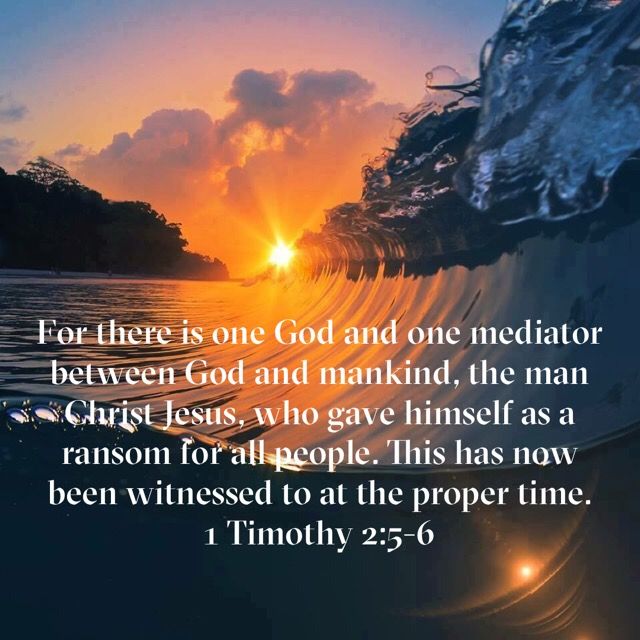 1 Kings 18:20-40 contains one of the most memorable Elijah narratives The great prophet of Yhwh summons the prophets of Baal and Asherah (well known deities in Syria-Palestine) at Mount Carmel for a contest of the gods. At stake is Israel’s allegiance to Yhwh- the living God alive in spirit, embodied in his people 'How long will you go limping with two different opinions? If the Lord is God, follow him; but if Baal, then follow him.” and finally whether Israel will heed the first commandment: “You shall have no other God’s before me” (Exodus 20:3). Elijah begins with an accusatory question addressed to the people: "How long will you go limping with two different opinions? If the Lord is God, follow him; but if Baal, then follow him” (1 Kings 18:21). The people’s unwillingness to choose is exemplified by their lack of a response (v. 21). But for the prophet Elijah, indecision is not religiously neutral ground. They cannot worship both Baal and Yhwh, for to trust the former is to reject the latter. Indecision is not neutral ground. This point is underscored by Elijah’s reference to “limping” (cf. 2 Samuel 4:4). According to him, their indecision is not morally neutral ground; in fact, their unwillingness to choose actually results in self-inflicted injury. Needless to say, while the people aren’t up for choosing between Baal and Yhwh, they are most certainly up for a battle of the gods (1 Kings 18:22-24). Elijah proposes a contest by fire. He calls for two bulls, cut in pieces, laid on wood. The prophets would then “call on the name of” their respective gods. The God who “answers by fire is indeed God” (v. 24). As 1 Kings 18:24 suggests, what Elijah is proposing is about much more than mere pyrotechnics. In fact, this narrative isn’t fundamentally a power contest At All! At stake -is which- God answers prayer. In other words, whom could the people truly trust with their petitions? Which of the two deities would actually deliver on promises? And the narrative makes abundantly clear that there can be only one answer to these questions. The prophets of Baal do all they can to gain their god’s attention, even to the point of inflicting harm on themselves. They “called on the name of Baal from morning until noon” (1 Kings 18:26), “they cried aloud” (v. 28), they even “cut themselves with swords and lances,” and “they raved on until the time of the offering of the oblation” (v. 29). The narrator leaves absolutely no room for doubt about the status of Baal: "there was no voice, no answer, and no response” (v. 29). Elijah loses no time in mocking his opponents: “Cry aloud! Surely he is a god; either he is meditating, or he has wandered away, or he is on a journey, or perhaps he is asleep and must be awakened” (v. 27). The name of Baal is finally useless, and trust in him is shown to be misplaced. A similar story is found in Bel and the Dragon, one of the “apocryphal” additions to Daniel. In this story, Daniel proposes a contest, to see if Bel (a title of the Babylonian deity, Marduk) will actually consume the offerings left to him by the priests. Not only does Bel not show any appetite for his meal, Daniel proves that the priests and their families actually eat the meal. After the priests left their offering and the doors of the temple were sealed, Daniel coated the floor of the temple with ashes. In the morning, after opening the sealed temple, the footprints of the priests and their families were found in the temple. Bel, like Marduk, was shown to be no god at all. Polemics against the non-existence of foreign deities was common in late Israelite literature (cf. Isaiah 44:9-20; 45:20-25; 46:1-7). But Elijah approaches prayer in an entirely different manner to the prophets of Baal. He repairs the altar to Yhwh (1 Kings 18:30), and in a way that brings to mind God’s promises to Israel: “Elijah took twelve stones, according to the number of the tribes of the sons of Jacob, to whom the word of the Lord came, saying, “Israel shall be your name”; with the stones he built an altar in the name of the Lord” (vv. 31-32). In a strong allusion to Jacob’s own contest with a “man,” Elijah points to the moment when “Israel” received its name (Genesis 32:29). Elijah, like Jacob, was also engaged in a deadly contest. What gives Elijah prayerful access to the one true God is God’s -Name- and God’s promises. By these alone does Elijah prevail over the prophets of Baal, who have no ground for their hope. What the false prophets find is a god who is hidden, out of sight and out of earshot. The account of Elijah and the prophets of Baal is recorded in 1 Kings 18. After Israel had gone more than three years without rain as a judgment for their idolatry, the prophet Elijah confronts the evil king Ahab and challenges him to a spiritual showdown. The king was to have all Israel gather at Mt. Carmel, along with the 450 prophets of the false god Baal and the 400 prophets of the false goddess Asherah (verse 19). On Mt. Carmel, Elijah said to the people of Israel, “How long will you waver between two opinions? If the Lord is God, follow him; but if Baal is God, follow him” (1 Kings 18:21). The people remained noncommittal at that point. Elijah then challenged the prophets of Baal to prepare a bull as an offering for their god—Elijah would do the same—with this catch: they could light no fire on their altar. The God who answered with fire from the sky would be considered the true God (verses 22–25). The people agreed that this was a good plan, and the prophets of Baal went first. The pagan prophets cried out and danced around their altar from morning till noon with no answer from Baal. Elijah began to mock them, saying, "Shout louder! . . . Surely he is a god! Perhaps he is deep in thought, or busy, or traveling. Maybe he is sleeping and must be awakened” (1 Kings 18:27). So the prophets of Baal “shouted louder and slashed themselves with swords and spears, as was their custom, until their blood flowed. Midday passed, and they continued their frantic prophesying until the time for the evening sacrifice” (1 Kings 18:28–29). Despite hours of effort, nothing happened. The historian’s comment hints at the emptiness of Baal-worship: "There was no response, no one answered, no one paid attention” (verse 29). Elijah then called the people to him as he repaired the altar of the Lord. He used twelve stones and dug a trench around the altar. He then placed wood on the altar and laid the cut pieces of the bull on it. Elijah then had the people douse the altar with twelve large jars of water. The water soaked the sacrifice and the wood and filled the trench (1 Kings 18:30–35). Once the sacrifice was ready, Elijah prayed, “Lord, the God of Abraham, Isaac and Israel, let it be known today that you are God in Israel and that I am your servant and have done all these things at your command. Answer me, Lord, answer me, so these people will know that you, Lord, are God, and that you are turning their hearts back again” (1 Kings 18:36–37). Then God did what Baal could never do: the fire of the LORD fell from heaven and consumed the burnt offering and the wood and the stones and the dust, “and also licked up the water in the trench” (verse 38). The people of Israel bowed down and declared the Lord as God (verse 39). Elijah then commanded the people to put the prophets of Baal to death, in keeping with God’s command in Exodus 22:20. Following this event, the Lord finally ended the drought and sent rain upon the land (1 Kings 18:45). The miraculous event of fire from heaven was an answer to the prayer of Elijah. God was seeking to turn the hearts of His people back to Himself. He used a time of drought to get their attention and then, through His prophet, performed a dramatic miracle right before their eyes. No one who witnessed that event doubted that the Lord was God and that Baal was a powerless wannabe. The repentance of the Israelites was soon followed by God’s provision of rain. James teaches us that “the prayer of a righteous person is powerful and effective” (James 5:16), and he uses Elijah’s prayer life as a case in point: “Elijah was a human being, even as we are. He prayed earnestly that it would not rain, and it did not rain on the land for three and a half years. Again he prayed, and the heavens gave rain, and the earth produced its crops” (James 5:17–18). 1 Kings 18 is the eighteenth chapter of the Books of Kings in the Hebrew Bible or the First Book of Kings in the Old Testament of the Christian Bible. The book is a compilation of various annals recording the acts of the kings of Israel and Judah by a Deuteronomic compiler in the seventh century BCE, with a supplement added in the sixth century BCE. This chapter belongs to the section comprising 1 Kings 16:15 to 2 Kings 8:29 which documents the period of Omri's dynasty. The focus of this chapter is the activity of prophet Elijah during the reign of king Ahab in the northern kingdom. Elijah and Obadiah (18:1–16) The main theme of the narrative is drought and rain. As the land of Israel including the king suffered under the drought, YHWH sent for Elijah to bring about the crisis and then the solution to the conflict between the worship of two deities. Before Elijah faced Ahab, one (God-fearing) minister, named Obadiah (meaning: 'servant of YHWH') became an intermediate. Obadiah was also the one helping to hide YHWH's servants during a purge of prophets by queen Jezebel(apparently the reason of Elijah's journey to the river of Kerith into the foreign territory of Phoenicia in Zarephath), so when Elijah unexpectedly standing before him, Obadiah fell to the ground in fear and respect. Similar miraculous transport of God's prophets is noted in Ezekiel 3:14, 11:1, cf. 2 Kings 2:11. After many days the word of the Lord came to Elijah, in the third year, saying, “Go, show yourself to Ahab, and I will send rain upon the earth.”
.As soon as Ahab met Elijah, he tried to hold the prophet responsible for the calamity befallen Israel, calling Elijah 'the troubler of Israel' (verse 17; cf. Joshua 6:18; 7:25 concerning Achan, whose sin brought God's judgment on Israel) .[9] Elijah immediately threw the accusation back at Ahab for the apostasy sin of him and his father's house forsaking YHWH and following the Baals.[9][13] In Joshua 7, the identity of the true 'troubler of Israel' was revealed in public before "all Israel", so in this case, Elijah wanted "all Israel" to gather on Mount Carmel, a place near to the Phoenician border, to resolve the matter. The people of Israel at this point seemed not to hold YHWH monotheism anymore as they didn't react to the choice Elijah offering at all: 'YHWH or Baal' alone, but they agreed to witness the competition (while the prophets of Baal didn't reply to the challenge). A miracle must bring truth to light, and it was quickly revealed that the Baals are incapable of doing this, even after their priests performing the whole cultic and ritual activities of Baalistic religion (as reliably reported in this narrative: the 'prayer, rhythmic movements, and self-mortification building up to ecstasy', verses 26–29). This violent cultic frenzy of Baalistic activities with 'swords and lances' (=spears) was attested by an Egyptian traveller "Wen-Amon" or "Wenamun", who around 1100 BCE witnessed it in Byblos, a Phoenician coastal city north of Jezebel's hometown of Sidon. By contrast, YHWH-religion only requires the spoken word (prayer) to immediately produce miracles. The people who saw the demonstration of divine power quickly turned to YHWH's side with a call of faith, 'The LORD indeed is God', which unmistakably recalls Elijah's name ('my God is YHWH'), so the personal conviction of Elijah then became that of the people of Israel. Elijah answered; "Now therefore send and gather all Israel to me at Mount Carmel, and the 450 prophets of Baal and the 400 prophets of Asherah, who eat at Jezebel's table."
And Elijah took twelve stones, according to the number of the tribes of the sons of Jacob, to whom the word of the Lord had come, saying, "Israel shall be your name."
https://www.biblestudytools.com/bible-study/topical-studies/who-are-the-144000-in-revelation-14-bible-meaning-and-verses.html In Revelation 14, we meet 144,000 people, who “had the name of Jesus and the Father on their foreheads.” And this is an interesting picture here. Who are these 144,000 people? What Does the Number 144,000 Mean? Well, one thing that's helpful to remember in Revelation, is that numbers mean things, sometimes in a different way than they do in historical narratives because Revelation is an “apocalyptic work” that shows this thing by pictures. It seems to represent all of God's people, from the Old Testament and the New Testament. The 12 Tribes of Israel… times the 12 apostles and those that they represent… times a very great number: 1,000. And so 12 x 12 x 1,000 is 144,000. And these are marked with the Seal of God on their foreheads. This shows us that they bow to the Lamb and to His Father, and we can contrast this with the Mark of the Beast that appears on those who do not belong to the Lamb. And so instead of being sealed, they merely have the Mark of the Beast, which indicates being owned not by the Lamb, but by the Beast. And that they follow his ways. And so there's a contrast between the 144,000 in Revelation 14 and those who are sealed with the Name of the Lamb and His Father and those that do not have that” seal” on them. The Lamb and the 144,000 (Revelation 14:1-5) "Then I looked, and behold, on Mount Zion stood the Lamb, and with him 144,000 who had his name and his Father's name written on their foreheads. And I heard a voice from heaven like the roar of many waters and like the sound of loud thunder. The voice I heard was like the sound of harpists playing on their harps, and they were singing a new song before the throne and before the four living creatures and before the elders. No one could learn that song except the 144,000 who had been redeemed from the earth. It is these who have not defiled themselves with women, for they are virgins. It is these who follow the Lamb wherever he goes. These have been redeemed from mankind as firstfruits for God and the Lamb, and in their mouth no lie was found, for they are blameless. The Messages of the Three Angels (Revelation 14:5-13) "Then I saw another angel flying directly overhead, with an eternal gospel to proclaim to those who dwell on earth, to every nation and tribe and language and people. And he said with a loud voice, "Fear God and give him glory, because the hour of his judgment has come, and worship him who made heaven and earth, the sea and the springs of water." Another angel, a second, followed, saying, "Fallen, fallen is Babylon the great, she who made all nations drink the wine of the passion of her sexual immorality." And another angel, a third, followed them, saying with a loud voice, "If anyone worships the beast and its image and receives a mark on his forehead or on his hand, he also will drink the wine of God's wrath, poured full strength into the cup of his anger, and he will be tormented with fire and sulfur in the presence of the holy angels and in the presence of the Lamb. And the smoke of their torment goes up forever and ever, and they have no rest, day or night, these worshipers of the beast and its image, and whoever receives the mark of its name." Here is a call for the endurance of the saints, those who keep the commandments of God and their faith in Jesus. And I heard a voice from heaven saying, "Write this: Blessed are the dead who die in the Lord from now on." "Blessed indeed," says the Spirit, "that they may rest from their labors, for their deeds follow them!" Elijah brings rain (18:41–46) The triumph of Elijah on Mount Carmel seems to make king Ahab even listen to Elijah's word, that the king should eat and drink while expecting the rain to come soon. The return of the rains is another triumph for Elijah, who called for rain seven times (verses 42–44) and as the rain started to pour, Elijah had the 'hand of the LORD' grasping him so he could run ahead of the royal chariots for more than 20 kilometres (12 mi) from Carmel to Jezreel. Thus, the opening conflict of 16:32–33 and 17:1 is resolved by proving YHWH to be the only effective God. Verse 46; And the hand of the Lord was on Elijah; and he girded up his loins, and ran before Ahab to the entrance of Jezreel.
In 1 Kings 22:19-23,
there is a troubling passage in which we are told that God used a lying spirit to deceive Ahab. Does God really use evil, lying spirits to do His bidding? Why would God do such a thing? To find the answer to this question, we need to learn a little background about King Ahab, and also understand something about the sovereignty of God. King Ahab was the son of Omri, and he reigned over Israel in Samaria for 22 years (1 Kings 16:29). Continuing the example of his father, Ahab did evil in the sight of God by worshiping Baal and “did more to provoke the Lord God of Israel than all the kings of Israel that were before him” (1 Kings 16:33). Ahab again and again proved he was bent on evil, evidenced by his continued refusal to listen to the prophet Elijah’s warnings . Ahab accused Elijah of troubling Israel by the drought, but Elijah declared that it was Ahab’s own sin that caused the troubles for the nation (1 Kings 18:18). Since Ahab had declared war on God by killing His prophets God then brought the war to Ahab in the form of a contest (1 Kings 18:19-40) between the four hundred and fifty prophets of Baal on one side, and Elijah on the other. When God miraculously verified Elijah’s status as His true prophet, Ahab should have repented, but he remained in his sinful rebellion, fueled by the wicked anger of his wife, Jezebel. In many subsequent incidents, God again showed His power and mercy to Ahab, but the king refused to submit and obey Him. Finally Jehoshaphat, king of Judah, came to visit him and Ahab persuaded him to join in battle to take Ramoth-Gilead from the Syrians. Wisely, Jehoshaphat insisted that they seek God’s will in the matter, so Ahab brought 400 false prophets together, who all assured him that God would give them victory (1 Kings 22:6). Jehoshaphat recognized their falsehood and asked whether a true prophet of God could be summoned. Ahab acknowledged that Micaiah was a true prophet, but he hated him, because “he never prophesies anything good about me, but always bad” (1 Kings 22:8). Micaiah was brought before the kings and delivered God’s final warning to Ahab. He said that if they went to war, they would be defeated and left without a king. Ahab replied, “didn’t I tell you that he never prophesies anything good about me, but only bad?” (1 Kings 22:18). Ahab was again rejecting the clear warning from God, and choosing a path of wicked rebellion. In response to Ahab’s constant choice of sin, God revealed some of the inner workings of the spiritual world. God had already pronounced a death sentence upon Ahab (1 Kings 20:42, 21:19), but had given him opportunity to repent of his wickedness. With this final rejection of God’s counsel, God determined to carry out the death sentence. Since Ahab continued to prefer the lies of his false prophets over the truth given by God’s prophets, God chose to use the false prophets to carry out His plan. When God asked for volunteers to “entice Ahab into attacking Ramoth Gilead and going to his death there” (1 Kings 22:20), a spirit (fallen angel/demon) said he would be a lying spirit in the mouth of the prophets. God gave the spirit permission to proceed, and Ahab received the message he desired. God chose to use a lying spirit because Ahab rejected God’s rebukes and warnings -all through his life- and the cup of God’s wrath was full. Since God is sovereign over all of creation, He is not restricted in what or whom He can use to accomplish His holy purposes. All of creation is under His authority, and He chooses to use people and spirits, both good and evil, to bring His divine plans to pass and bring glory to Himself. “He does as he pleases with the powers of heaven and the peoples of the earth. No one can hold back his hand or say to him: ‘What have you done?’" (Daniel 4:35). In the case of Ahab, God chose to using a lying spirit to accomplish His perfect and righteous plan (Psalm 18:30). The lying spirit will receive its punishment just as Ahab did, and those who repent of their sins will receive forgiveness just like Ahab could have. The real question is, “Will I respond to God’s warnings with faith and obedience, or will reject His counsel and be rejected by Him?” |
|
|
|
|
|
|
|
|
Paragraph. Clicca qui per modificare.
|
Paragraph. Clicca qui per modificare.
|
Paragraph. Clicca qui per modificare.
|
Paragraph. Clicca qui per modificare.
|
Paragraph. Clicca qui per modificare.
|
|


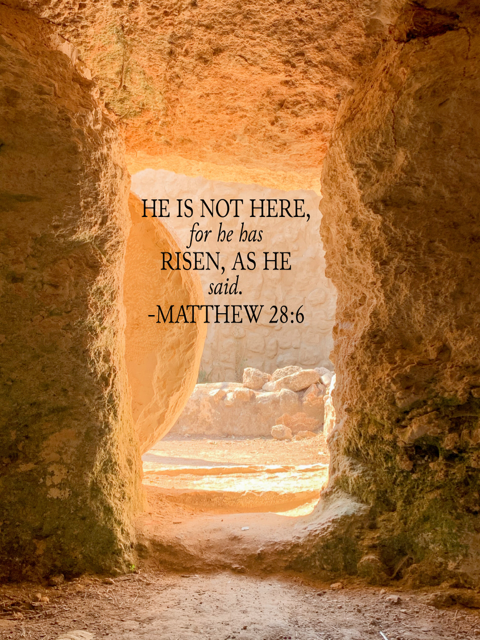
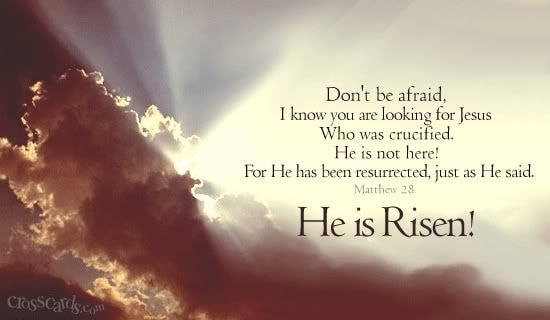
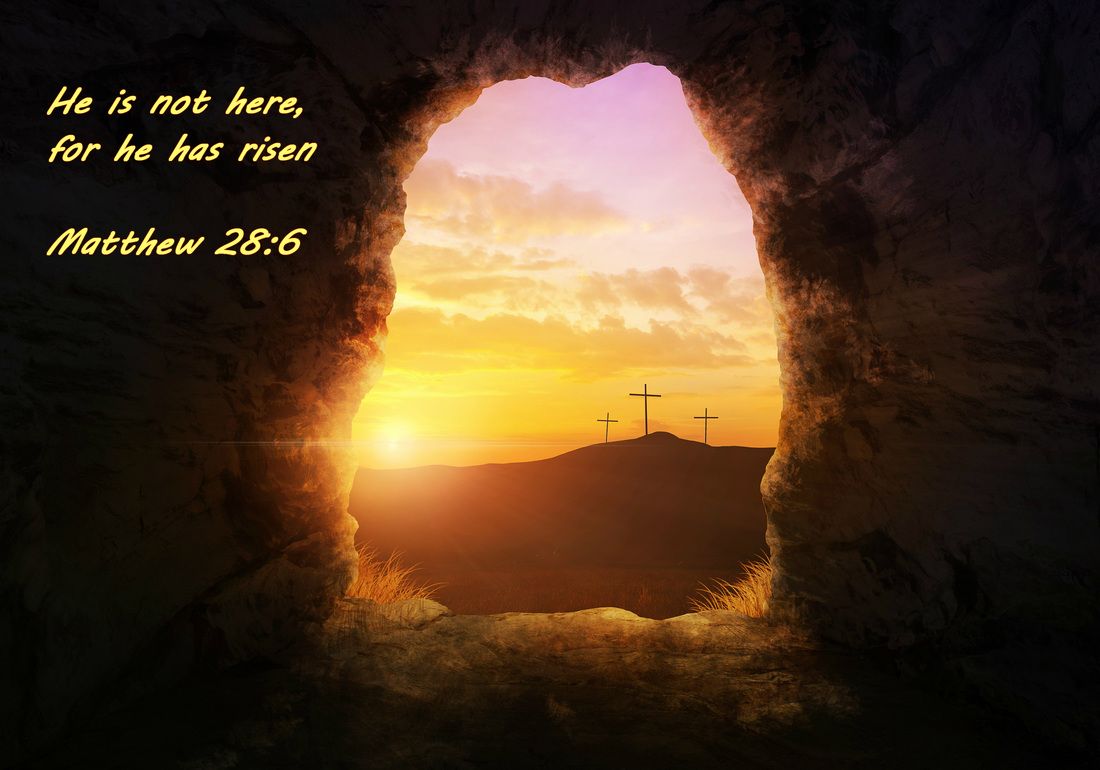



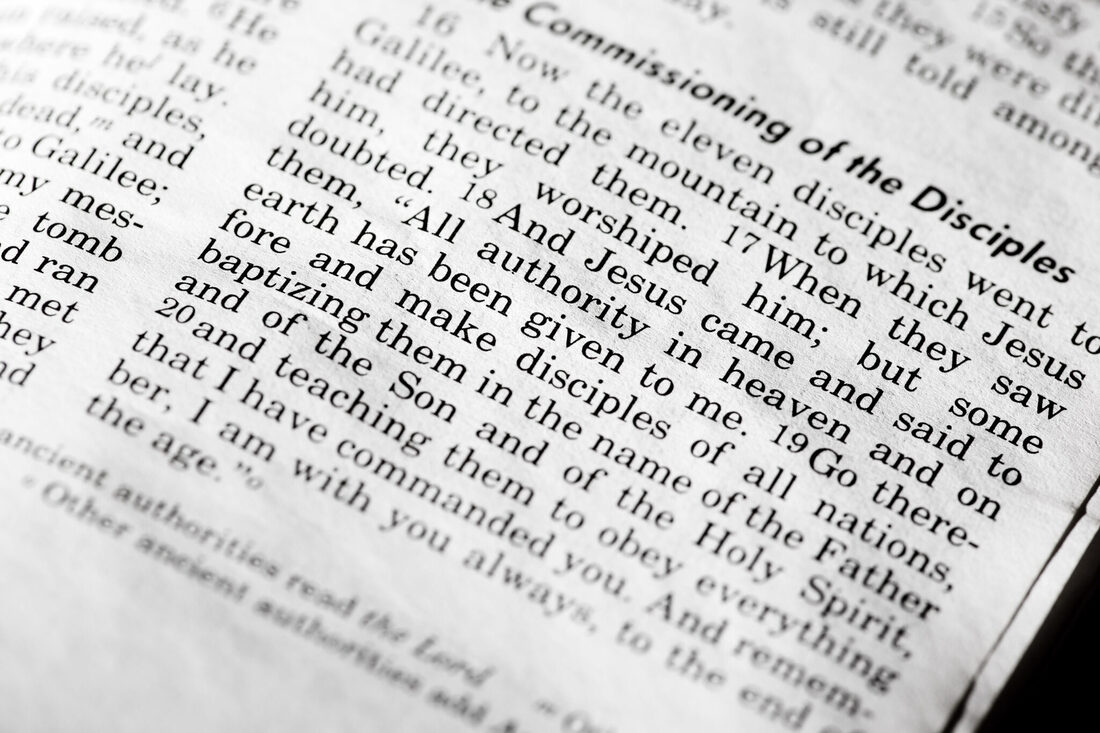


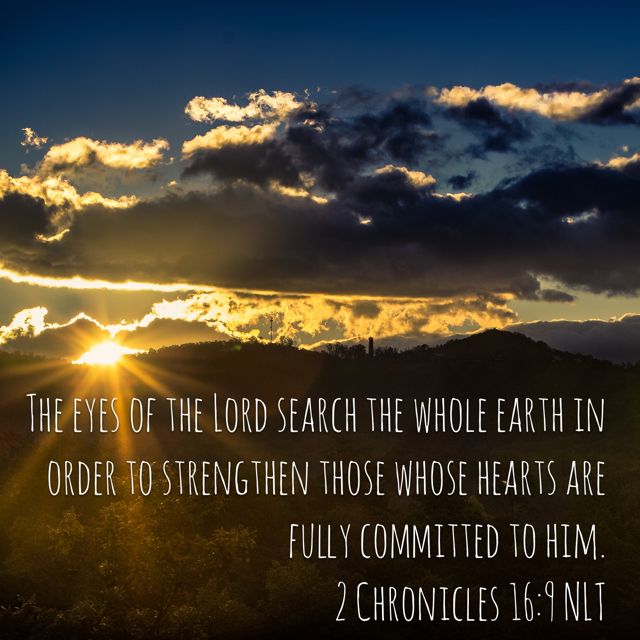
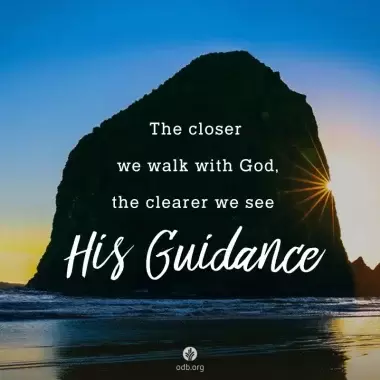
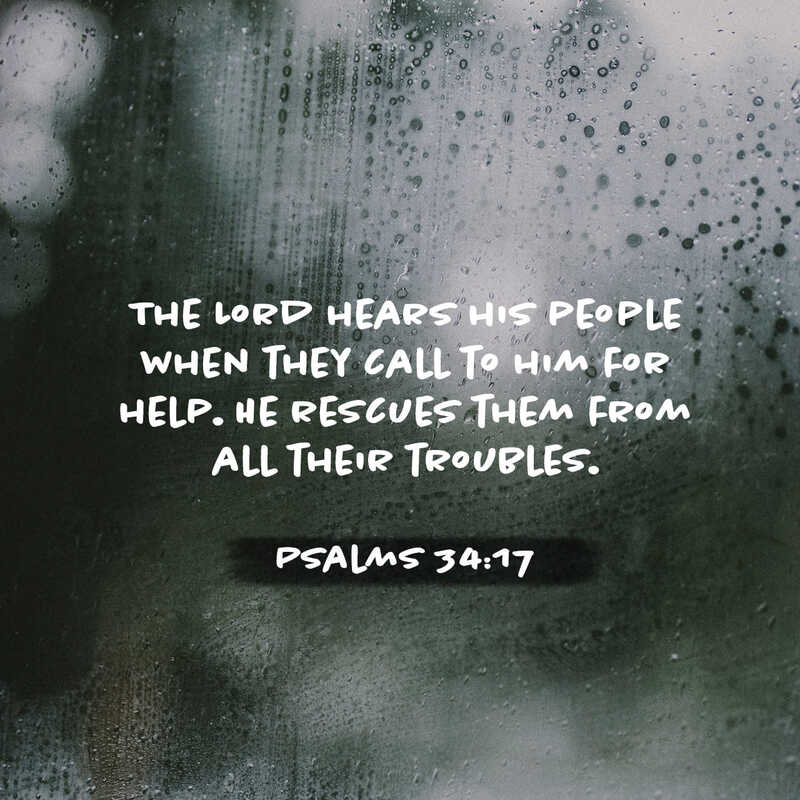



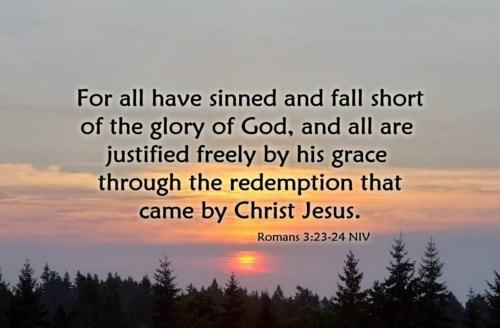





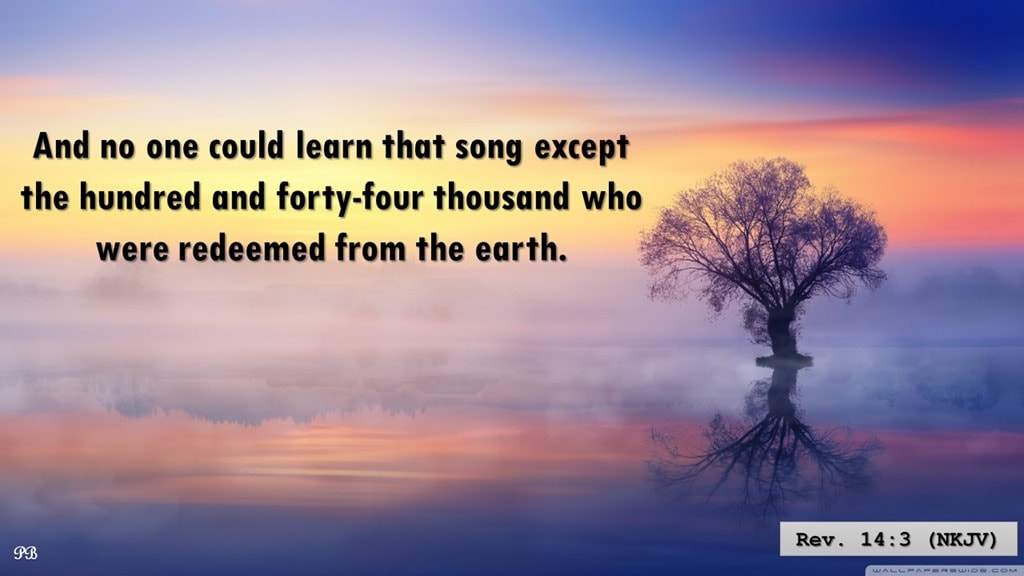

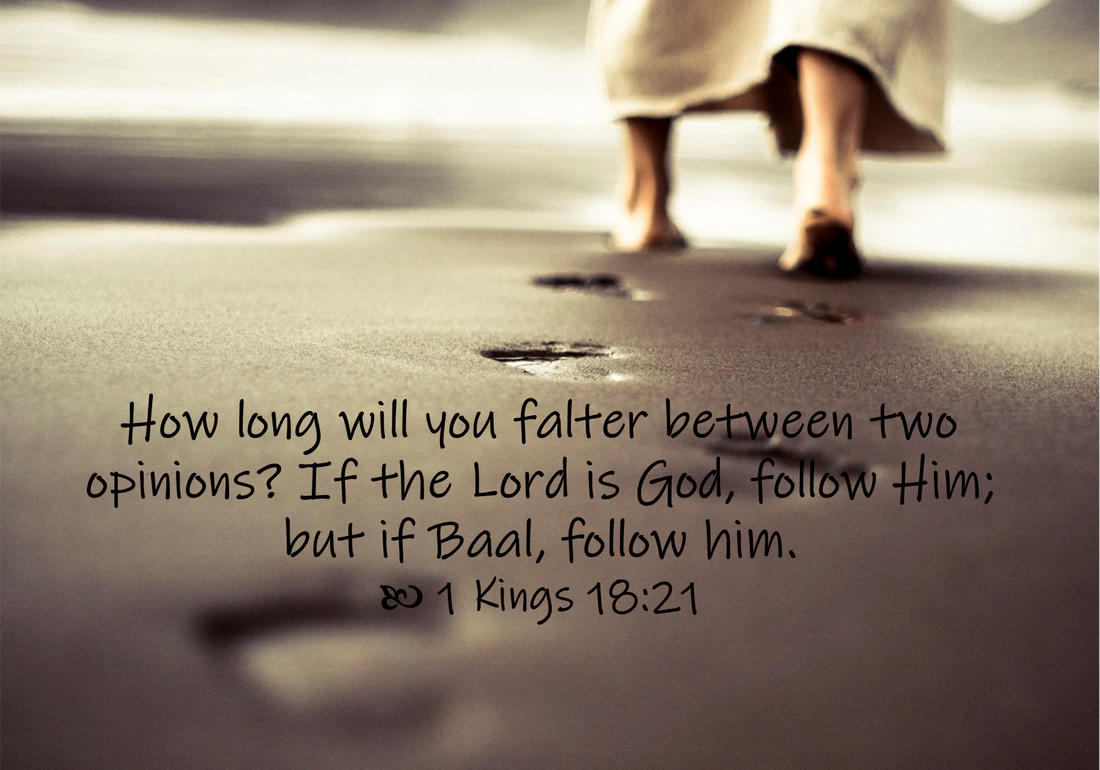

 RSS Feed
RSS Feed
























































